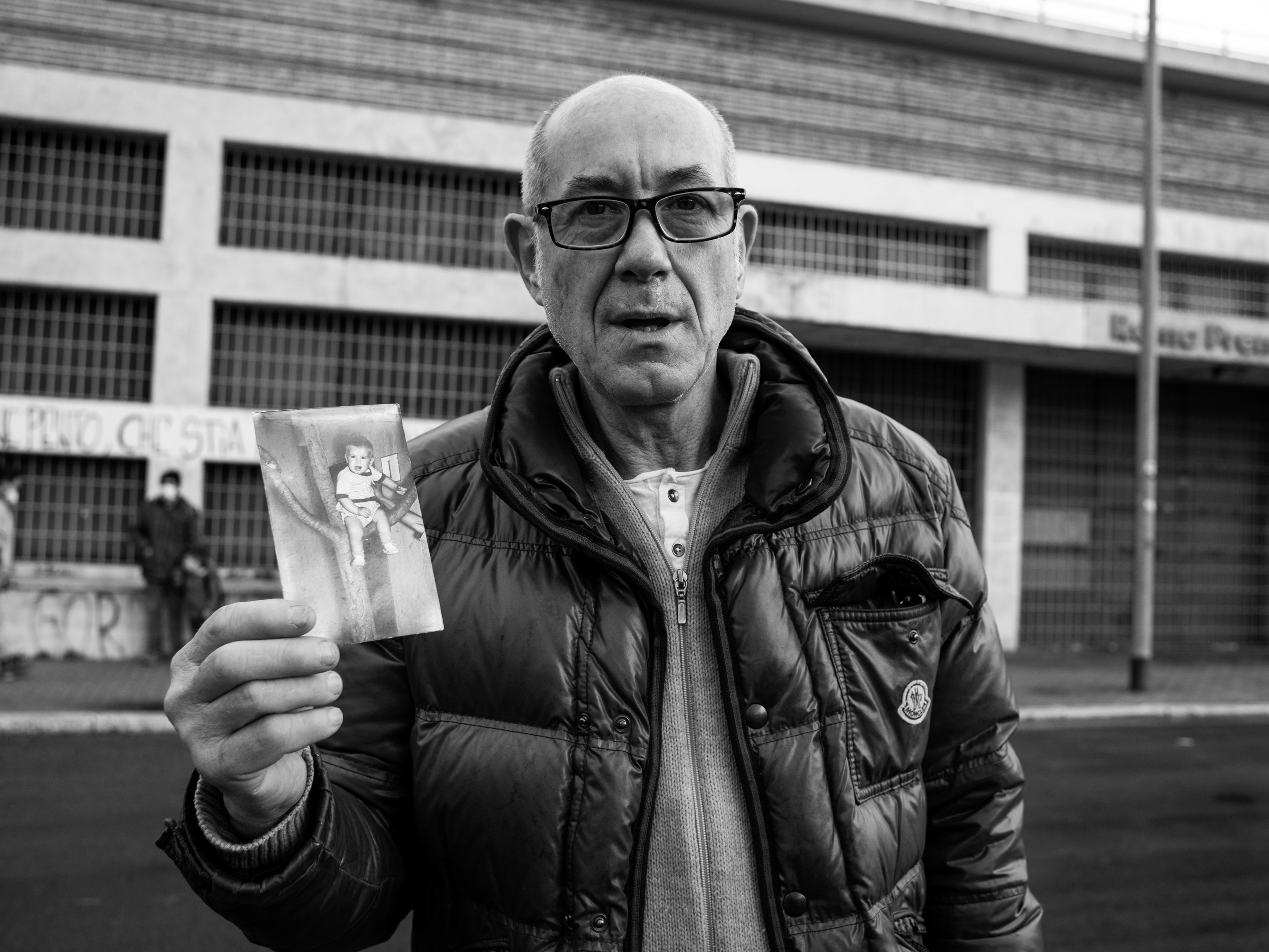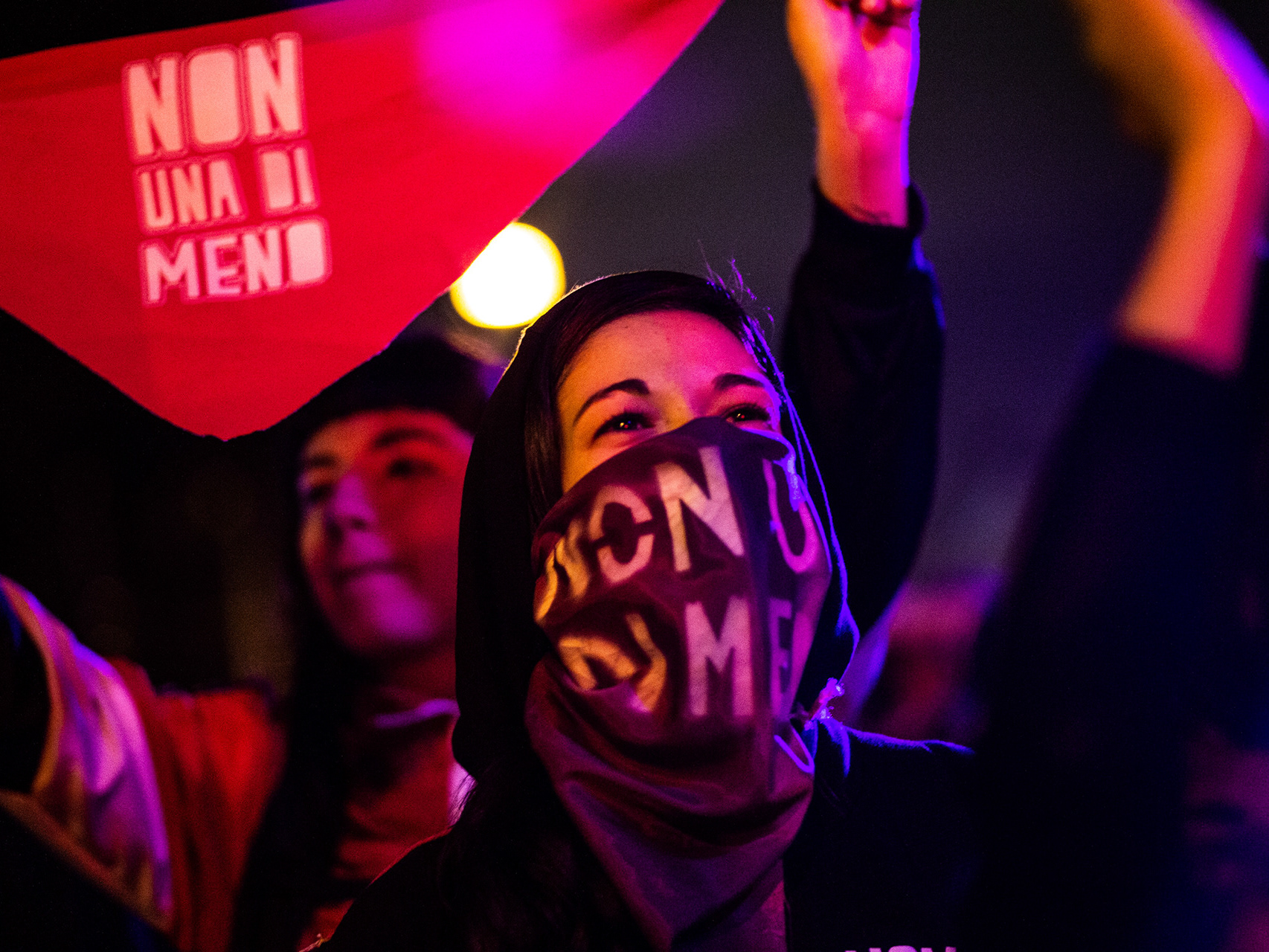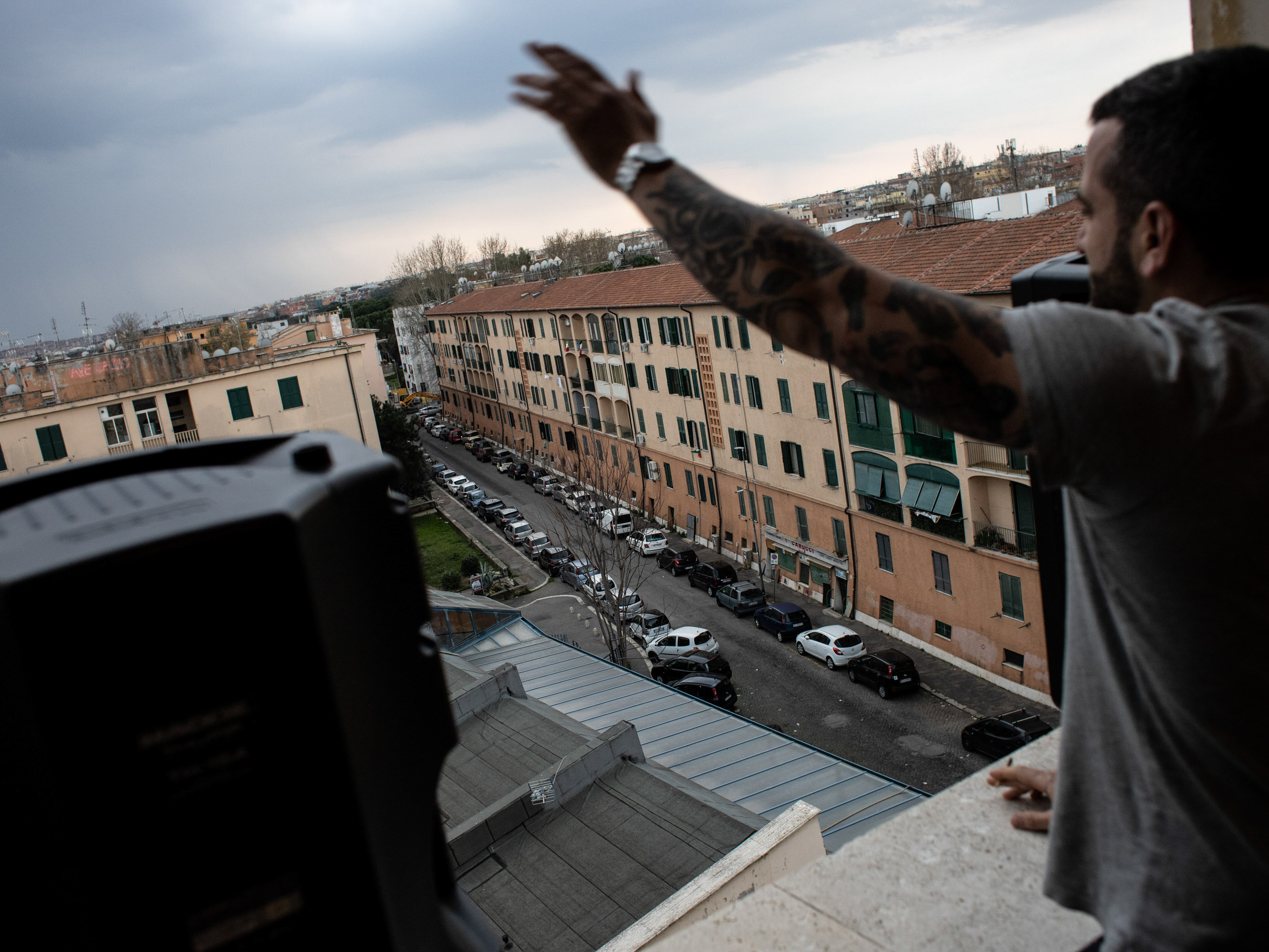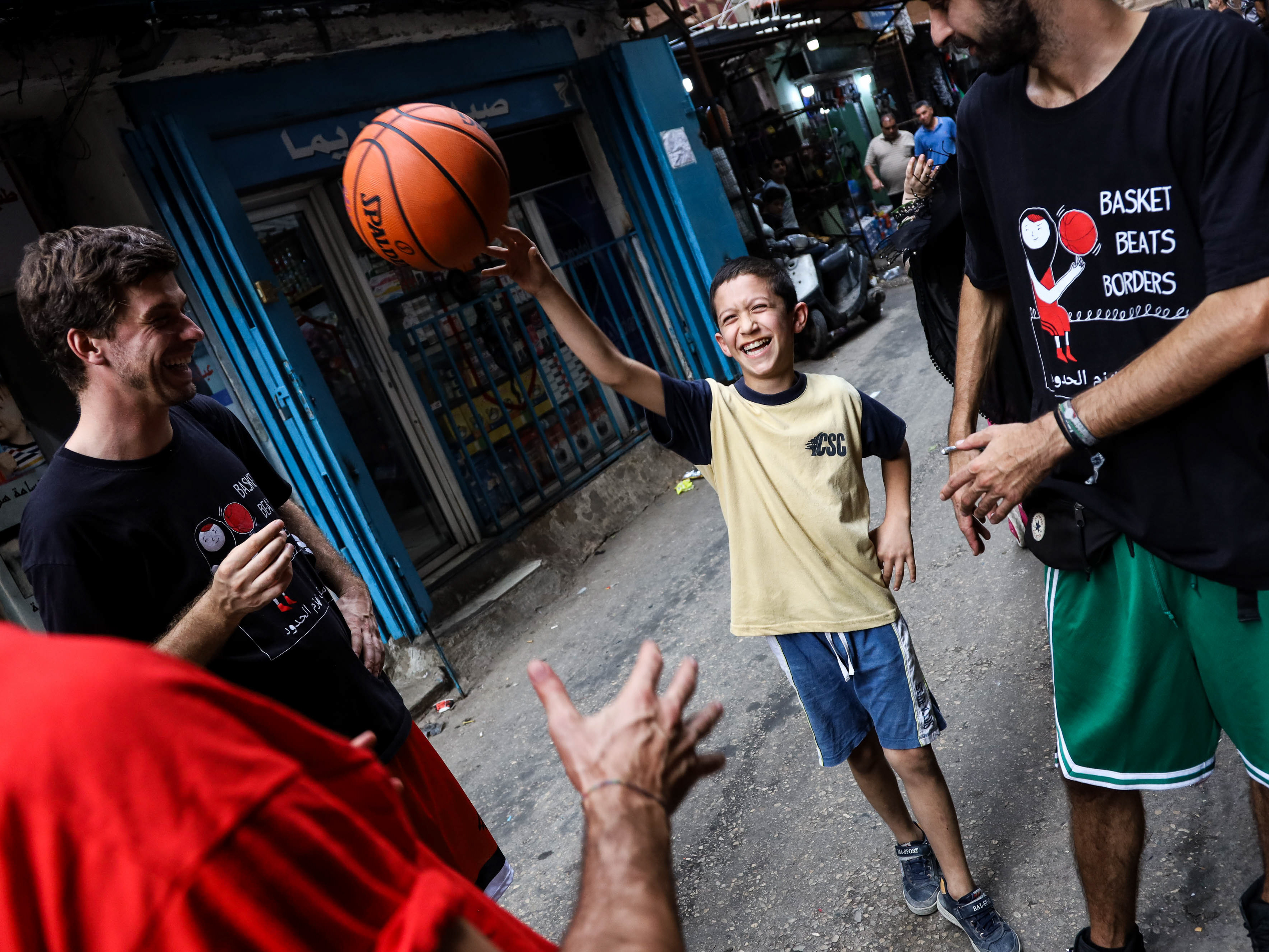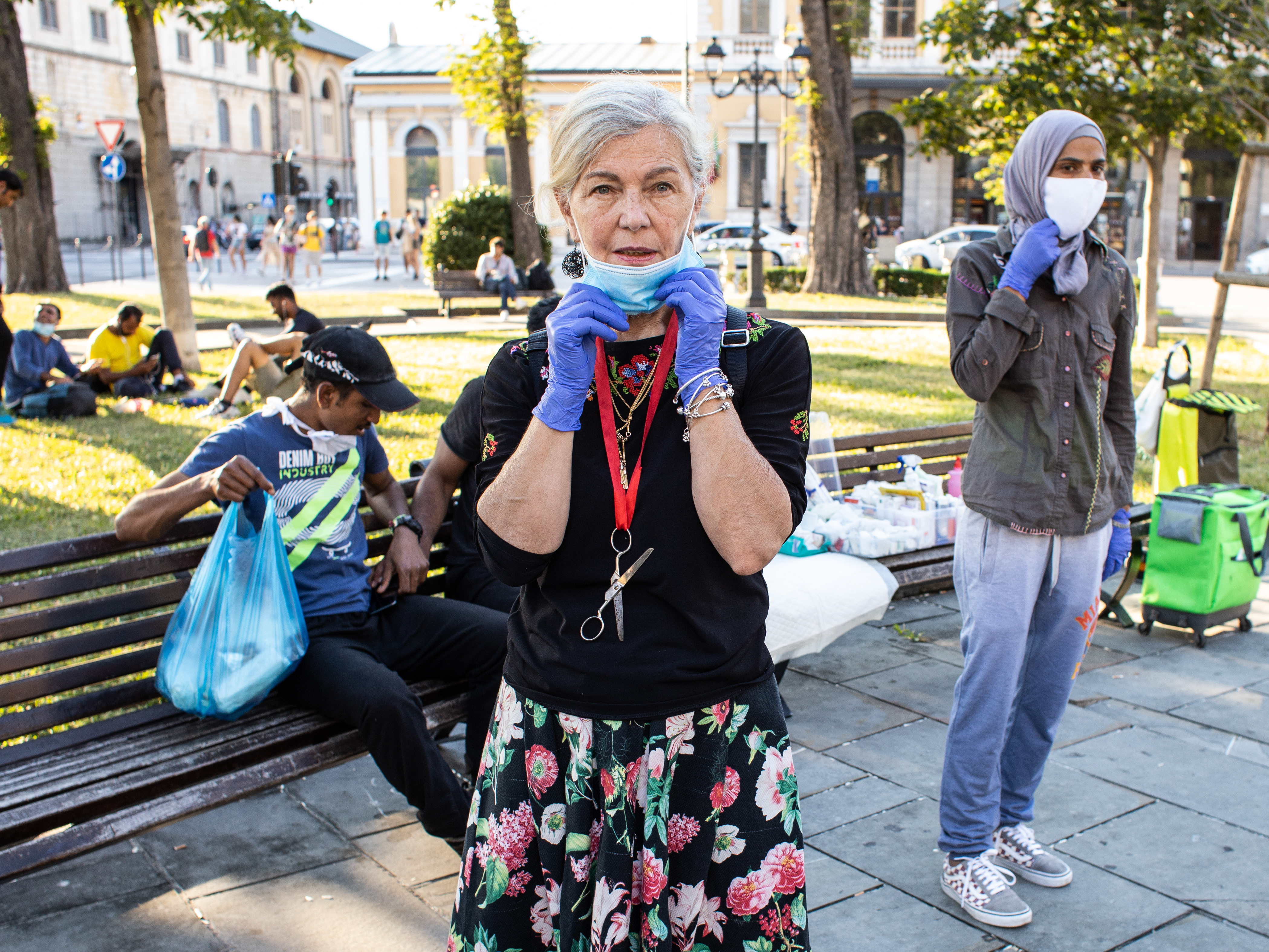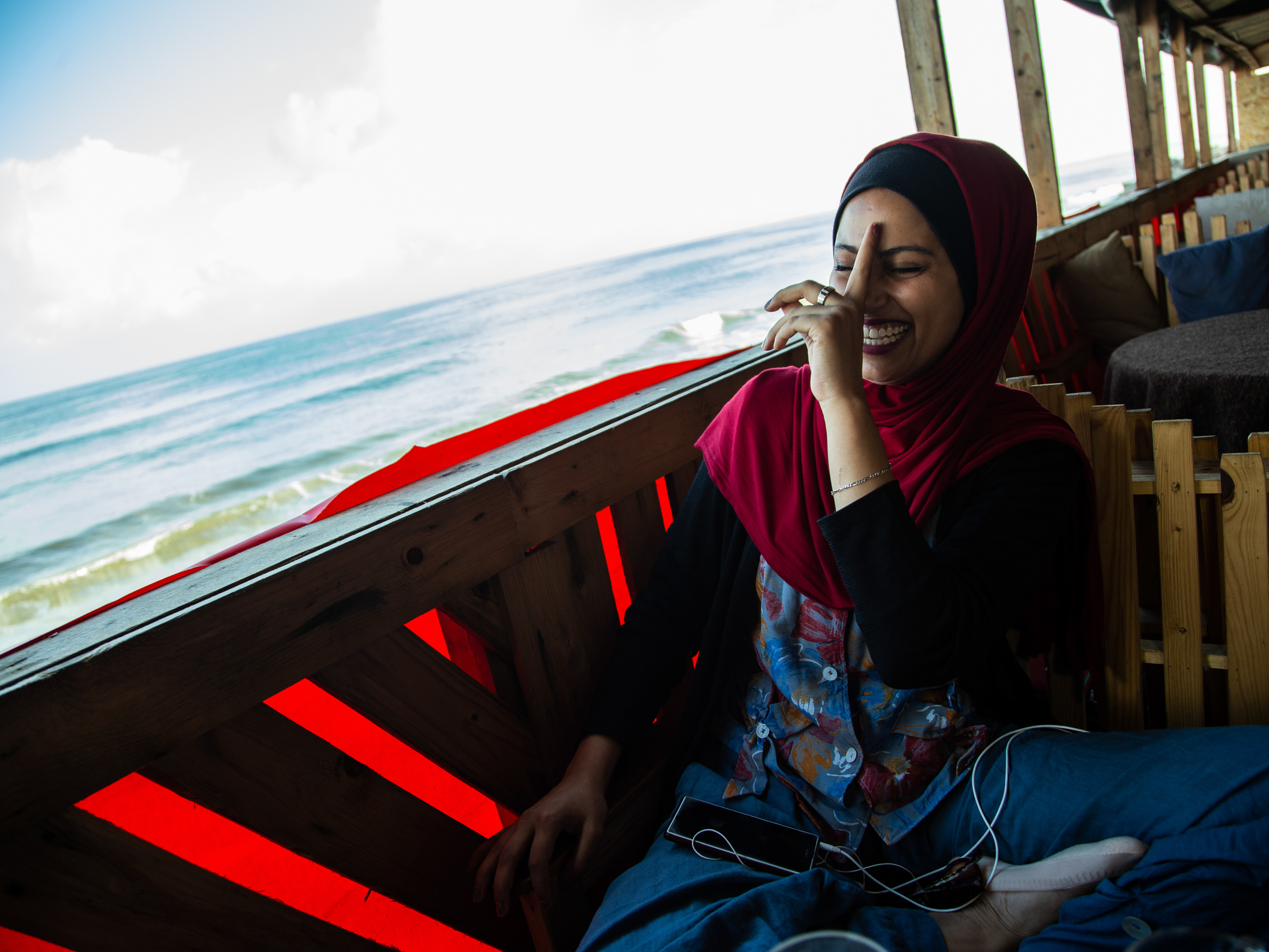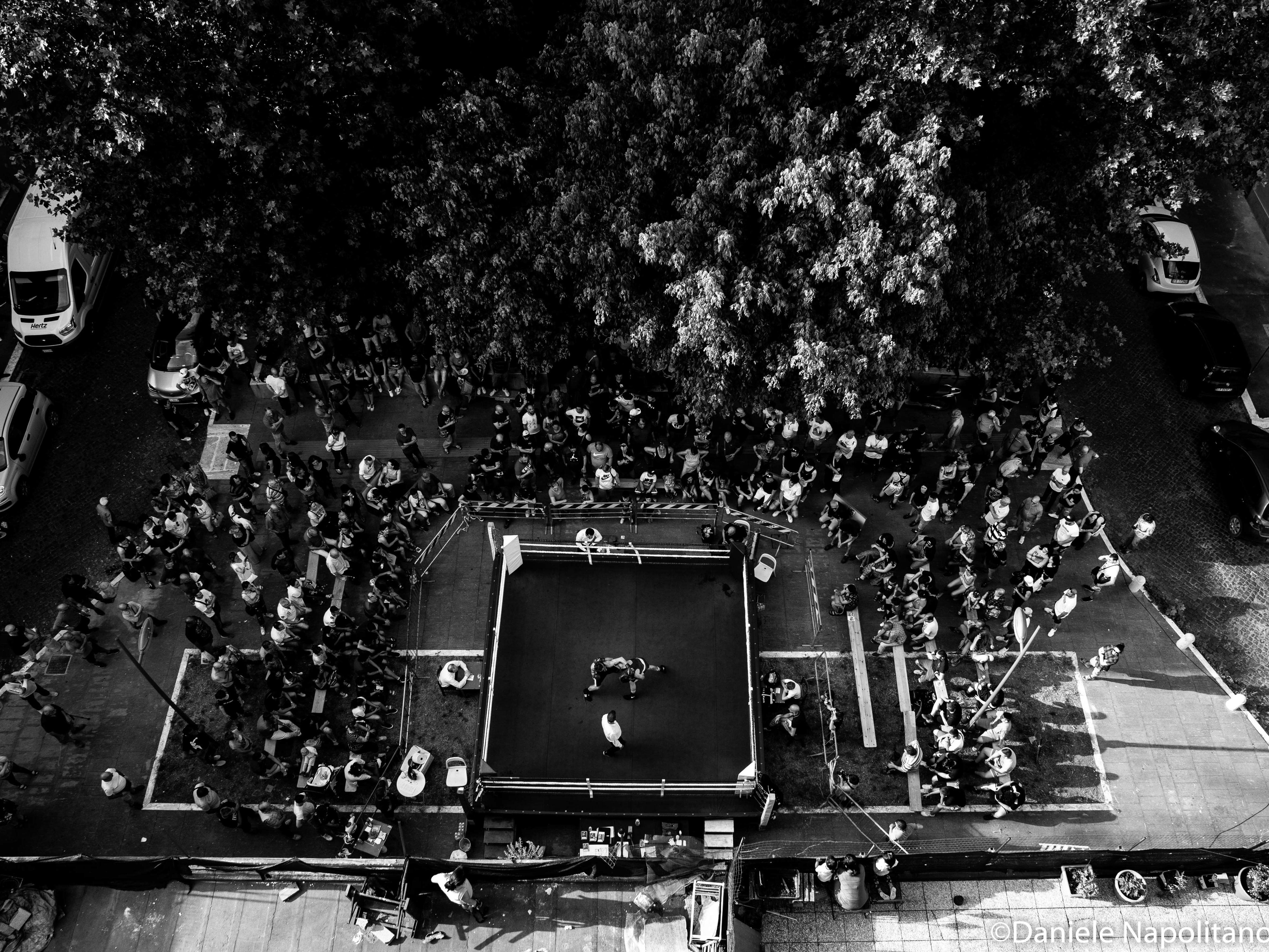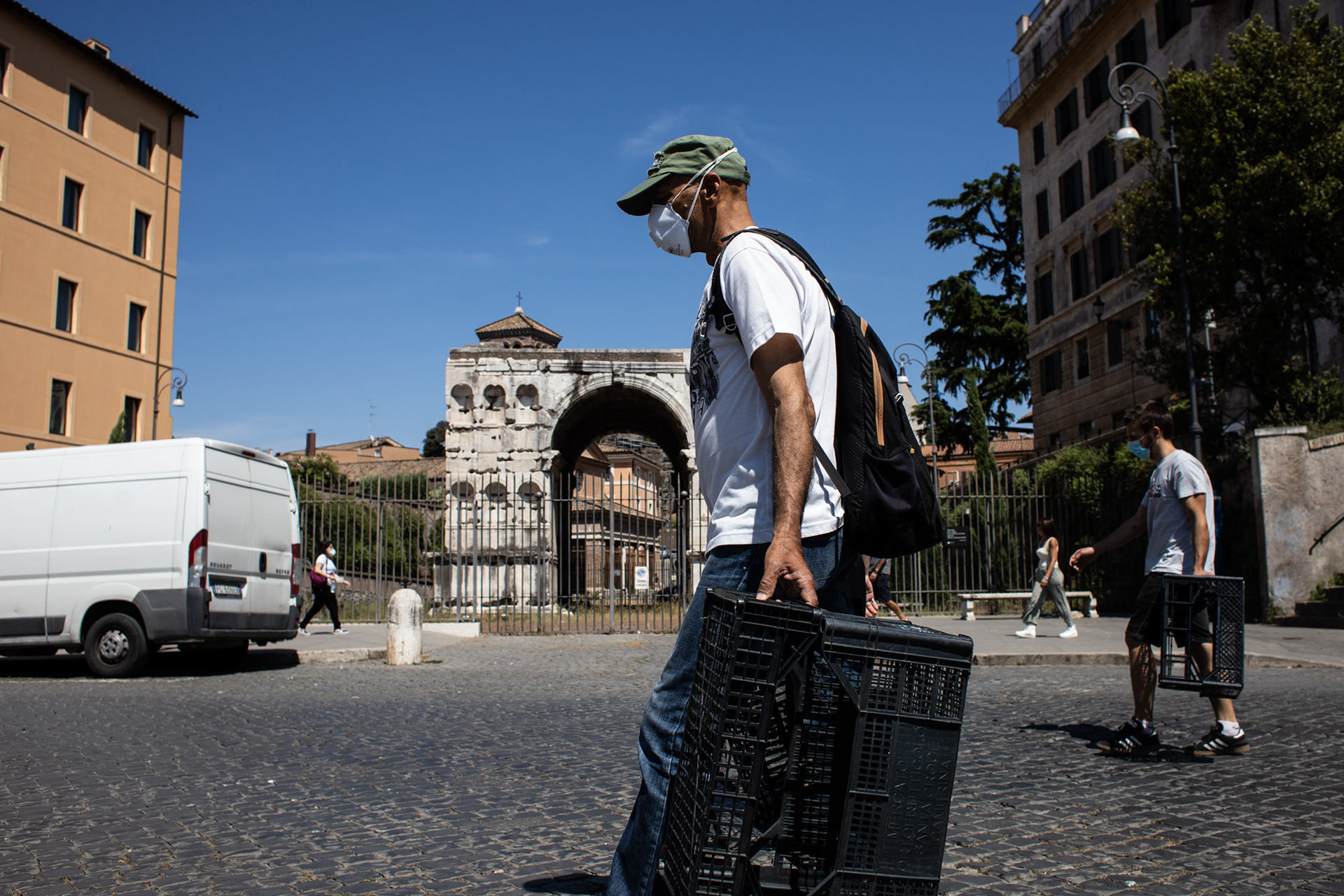
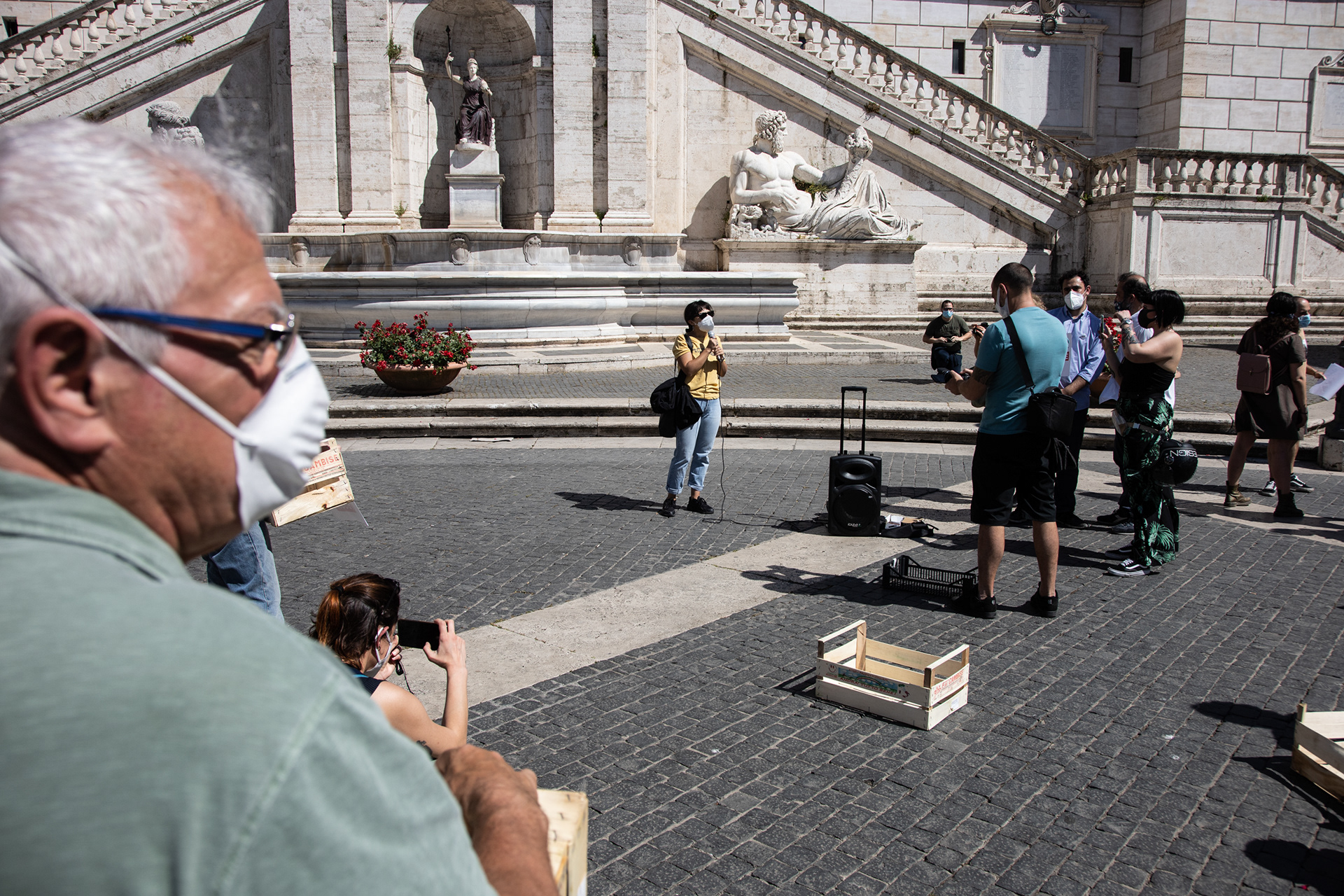
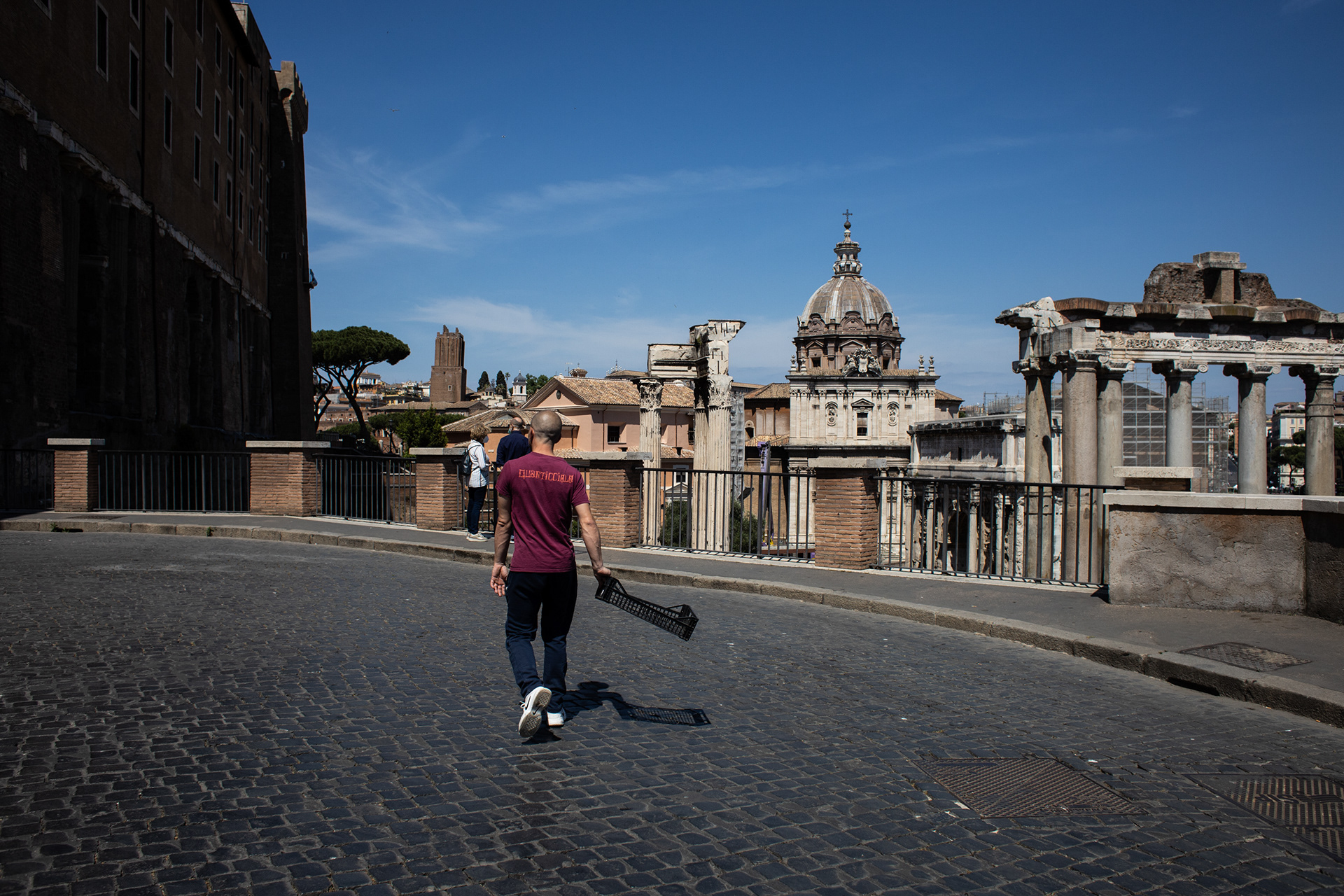

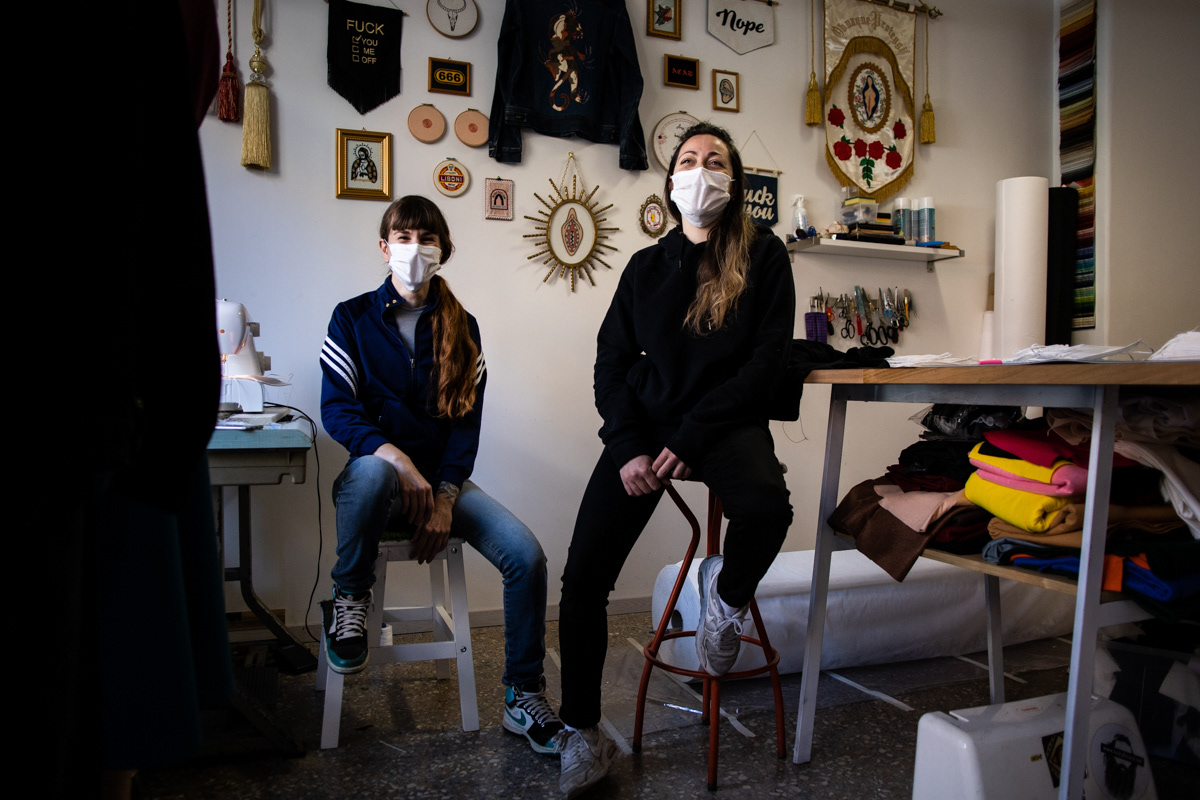
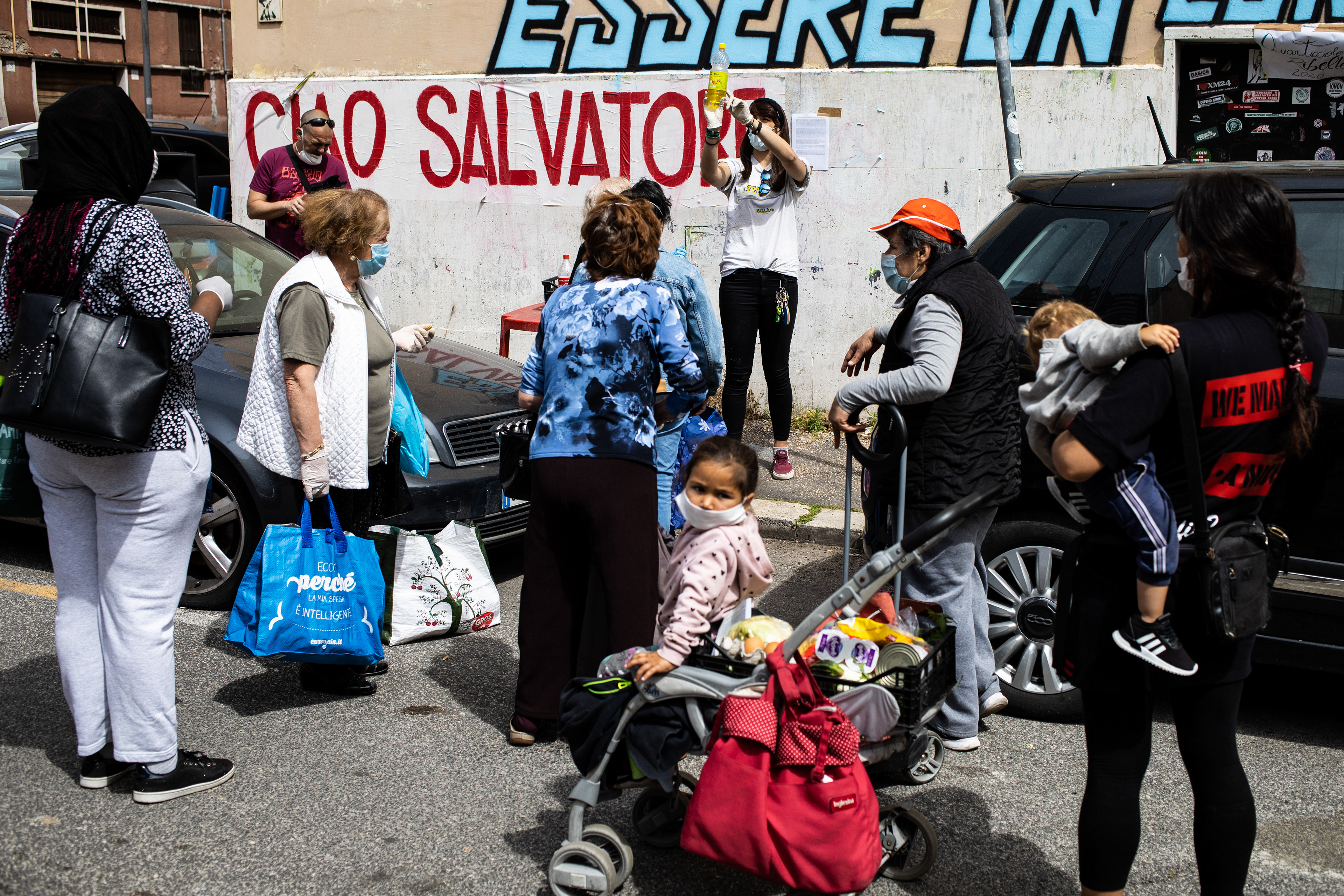
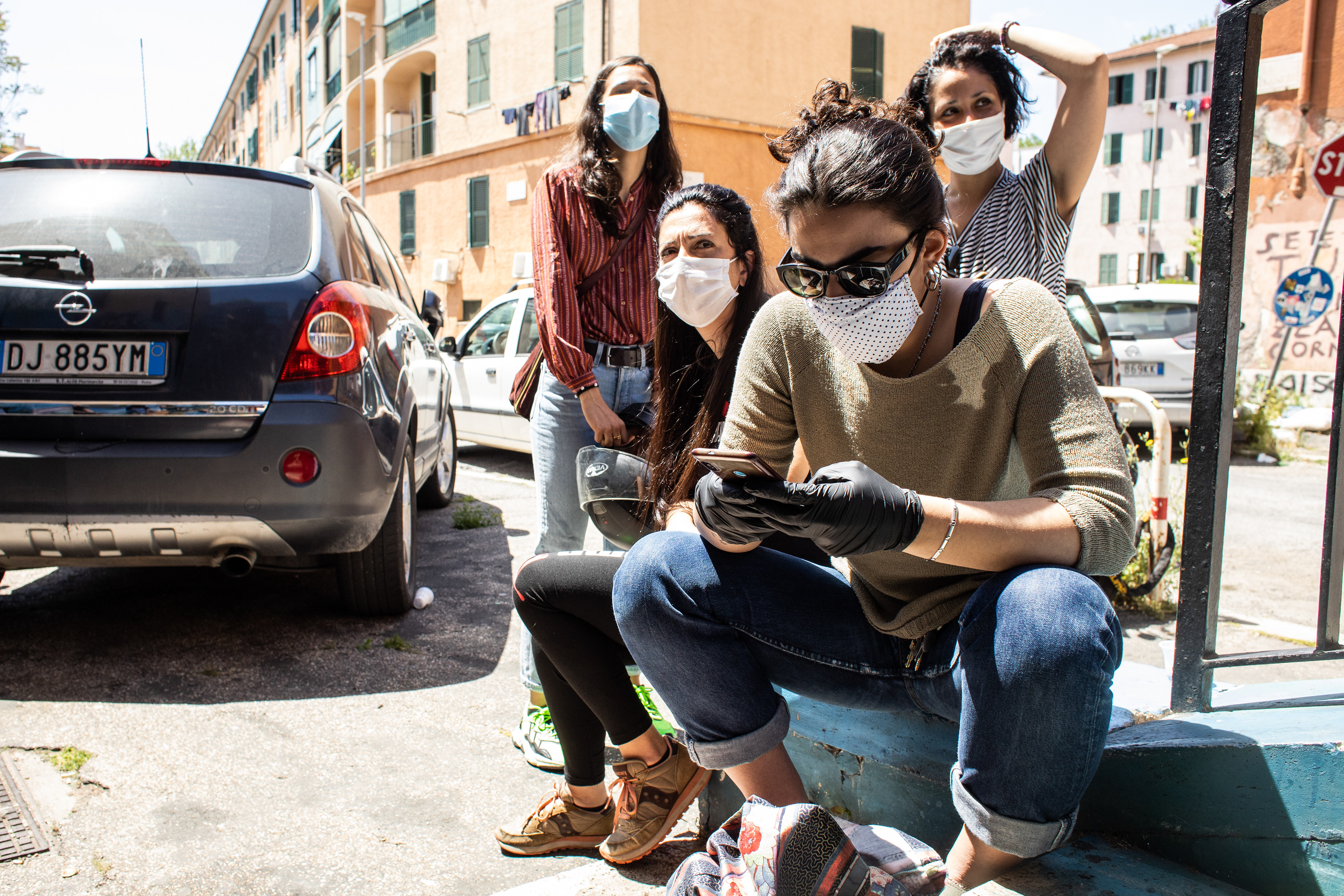
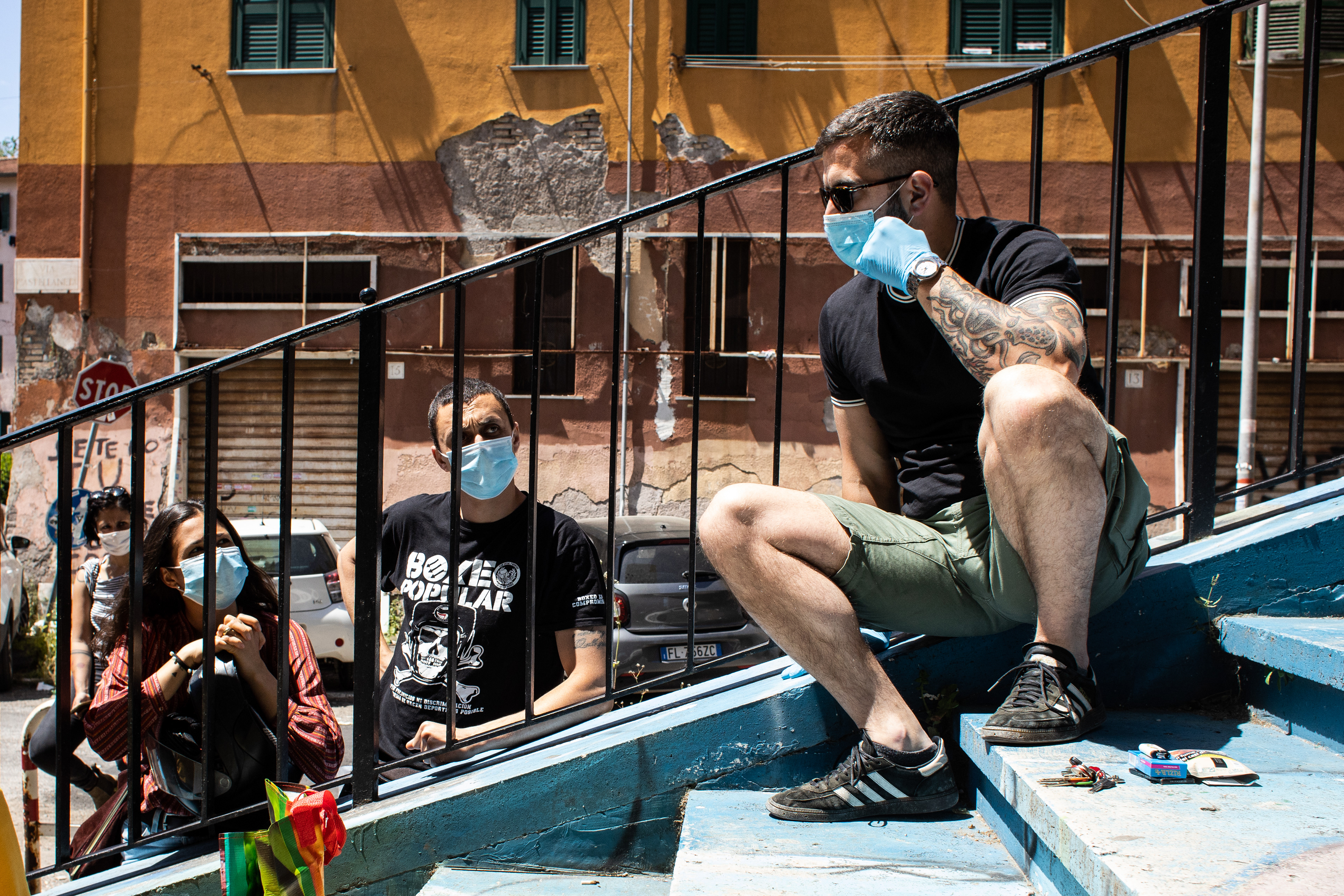
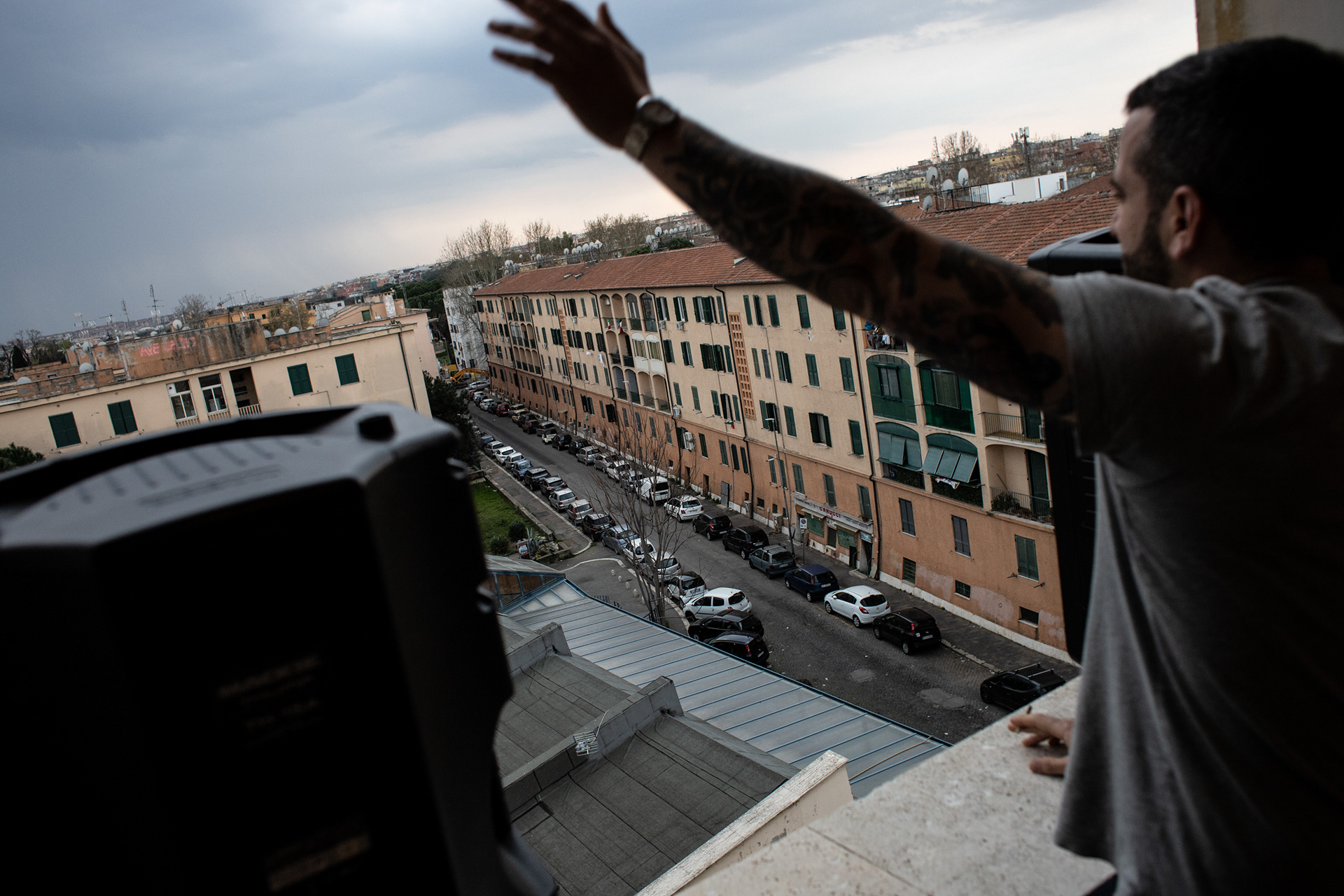

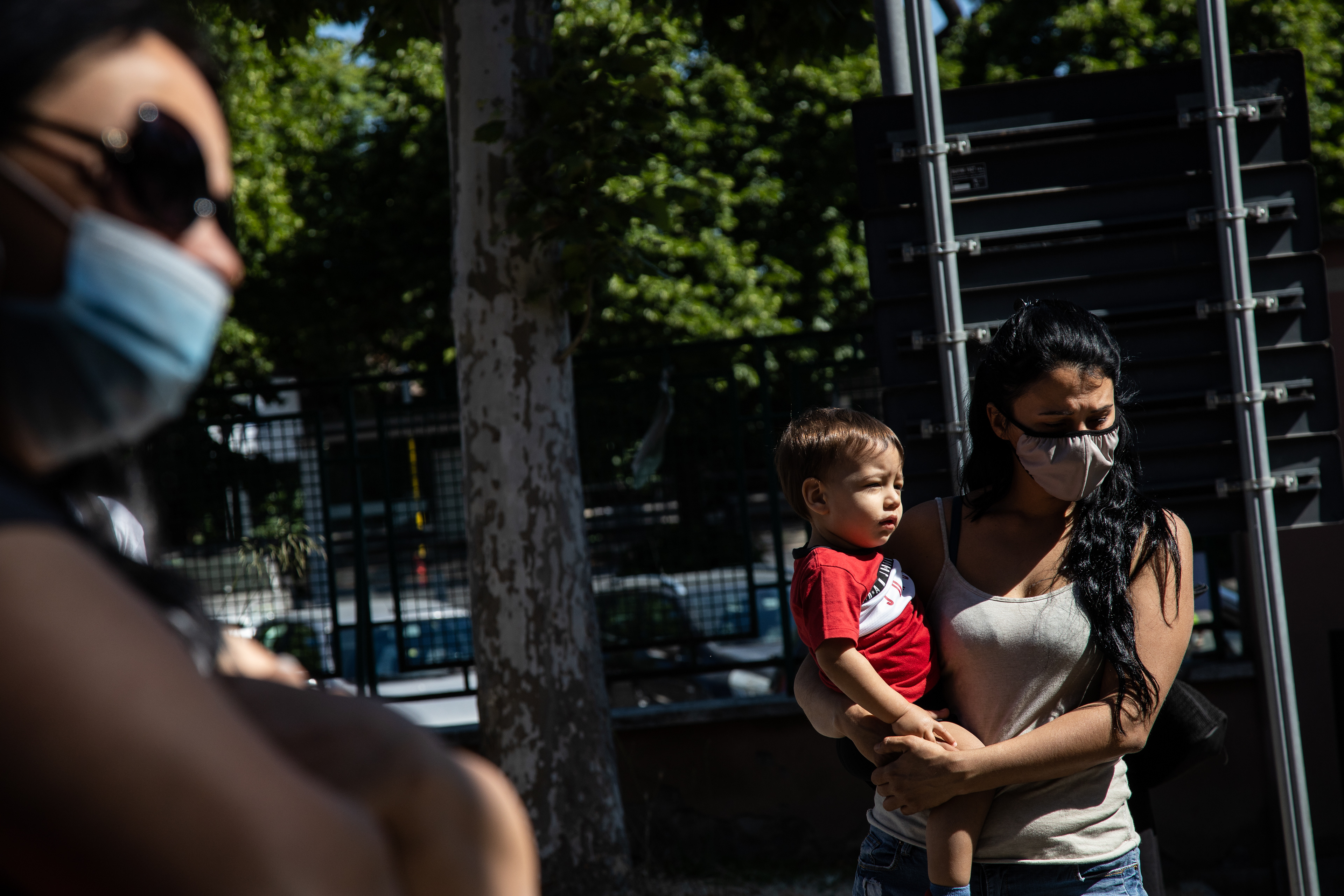
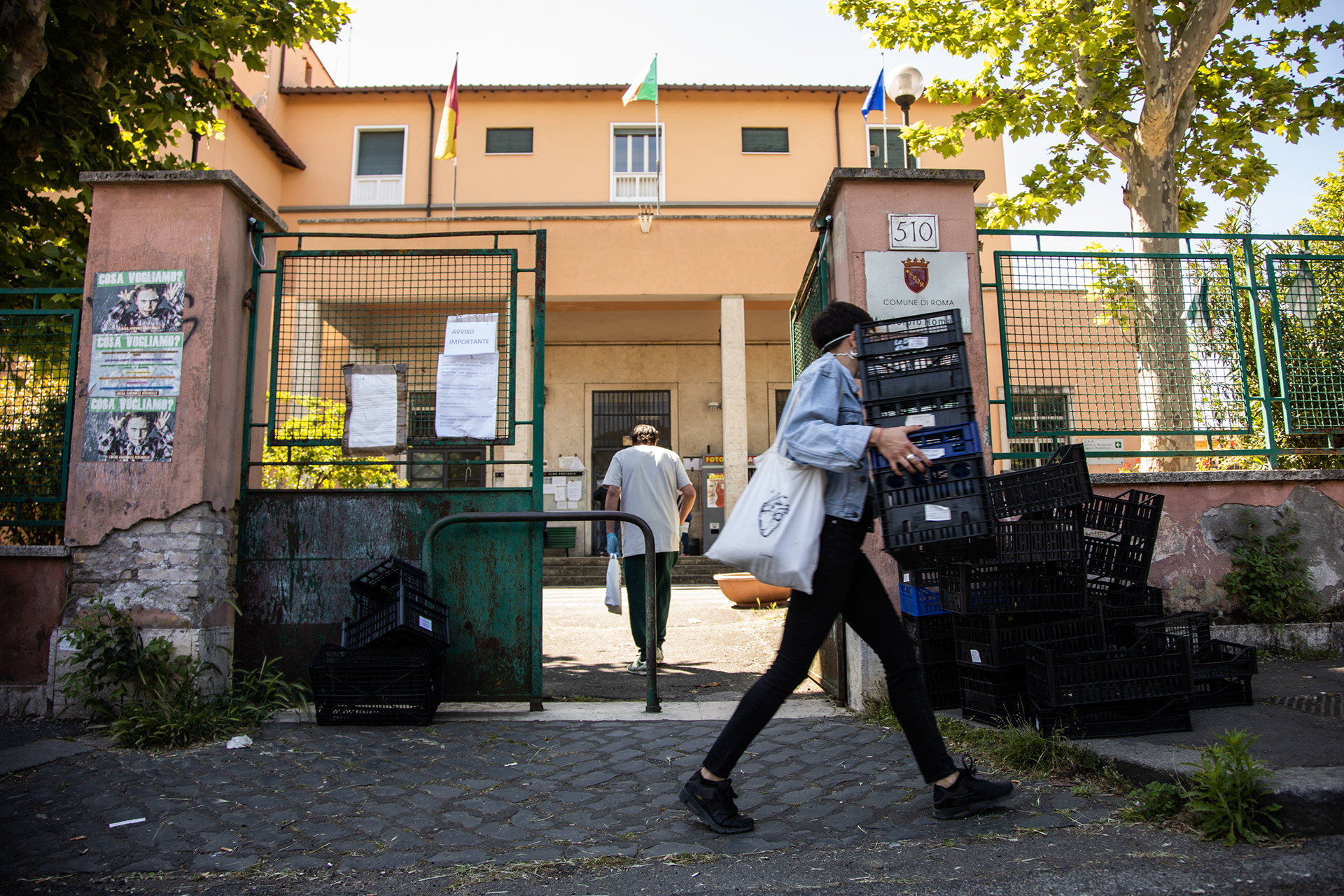

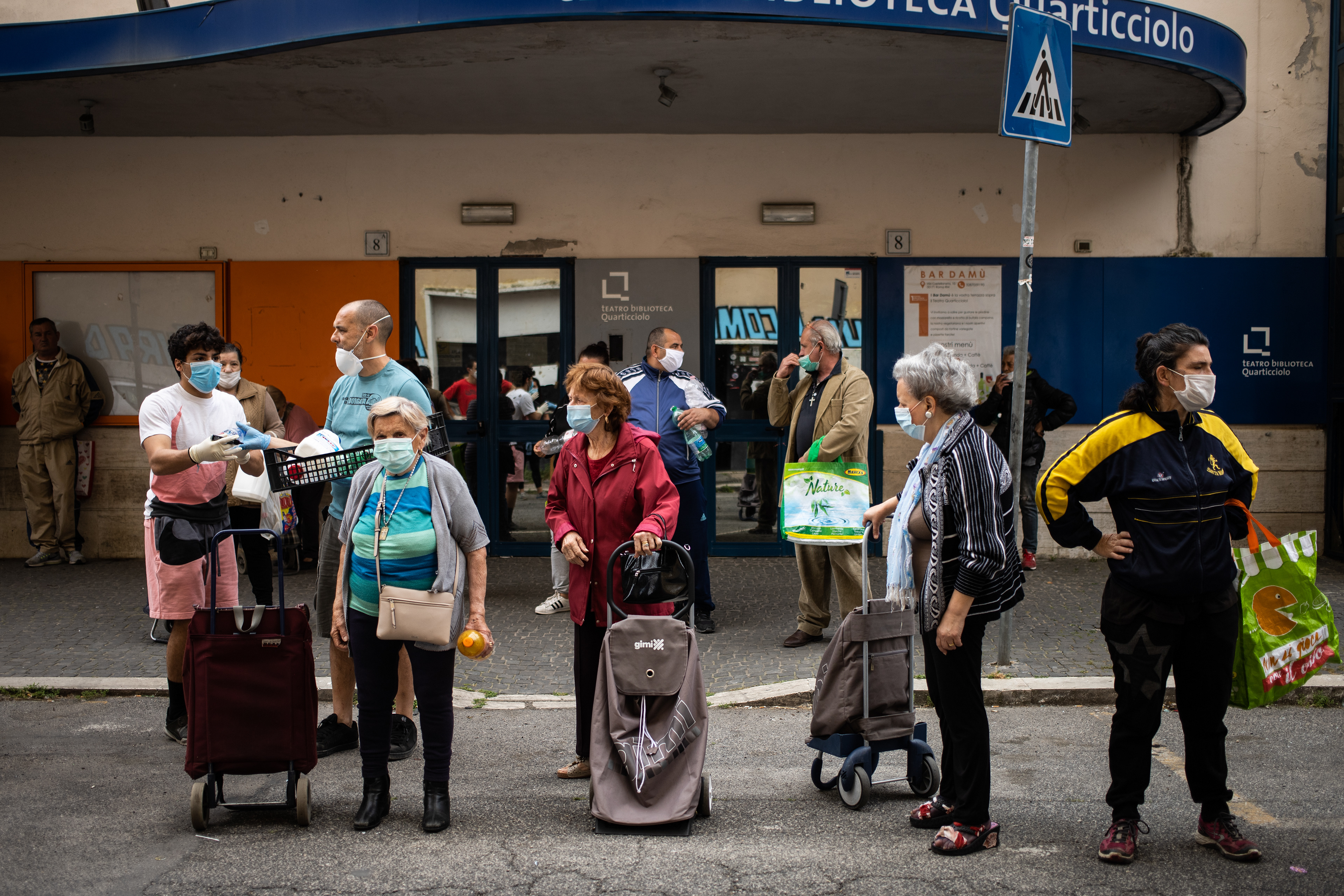
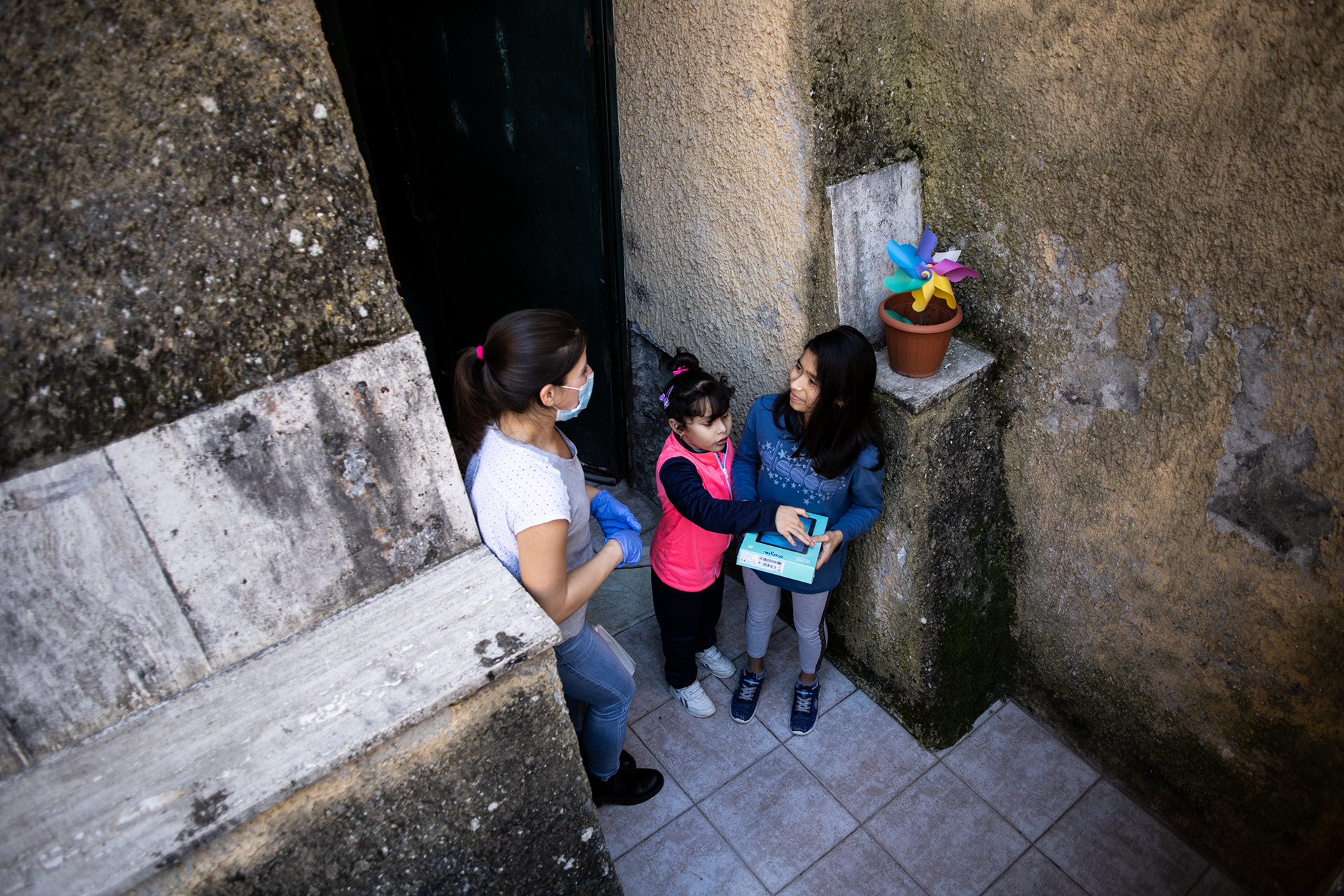
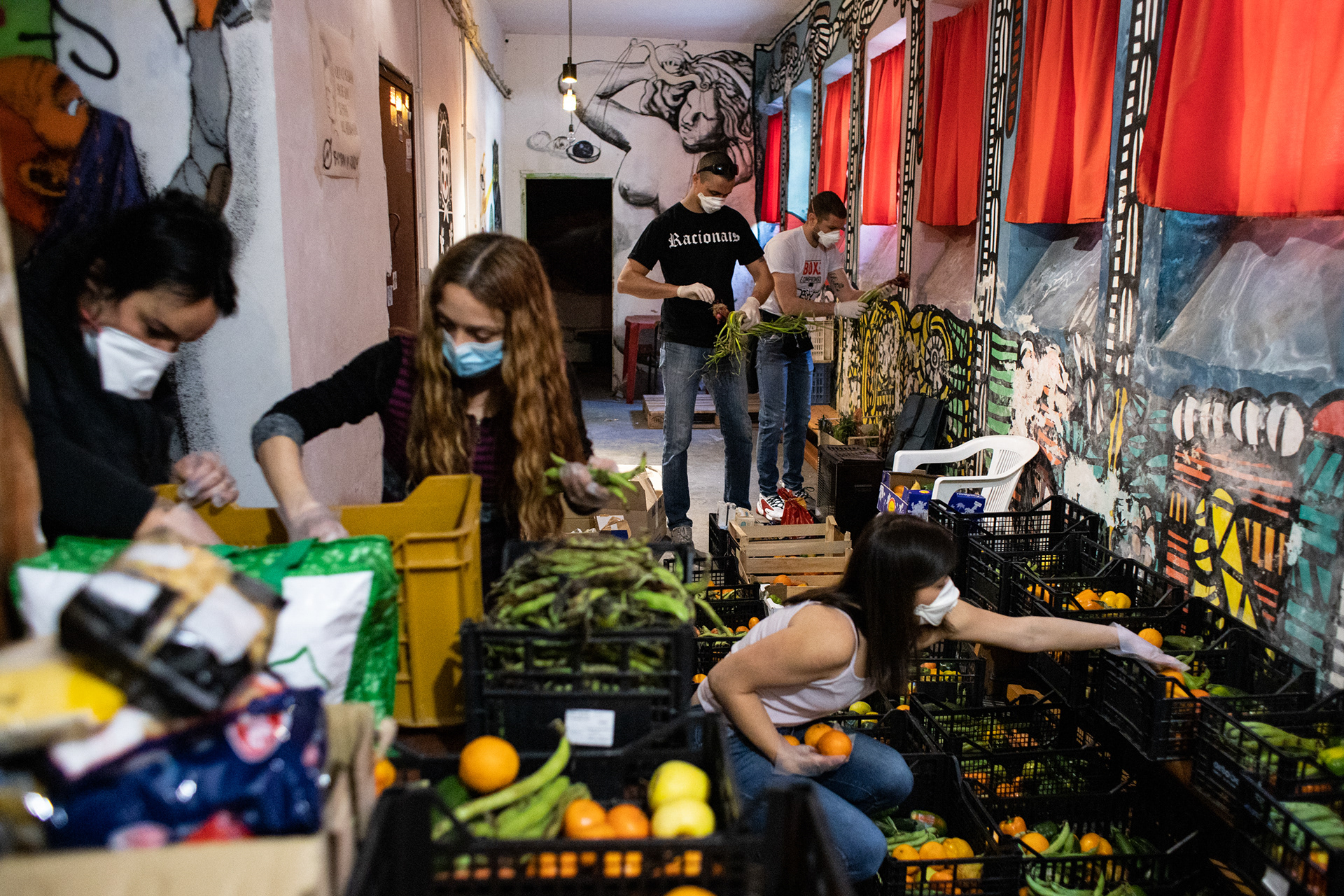
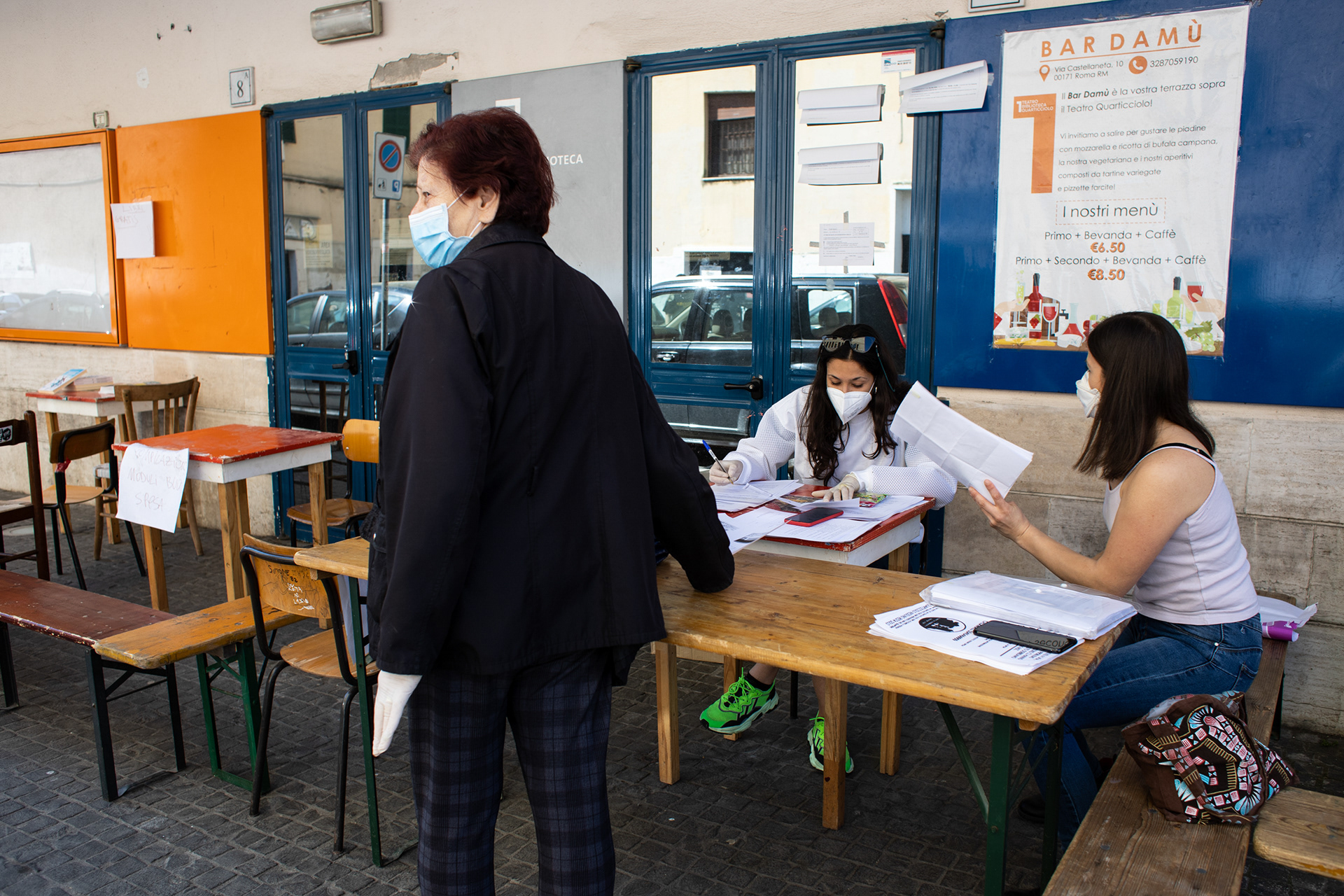
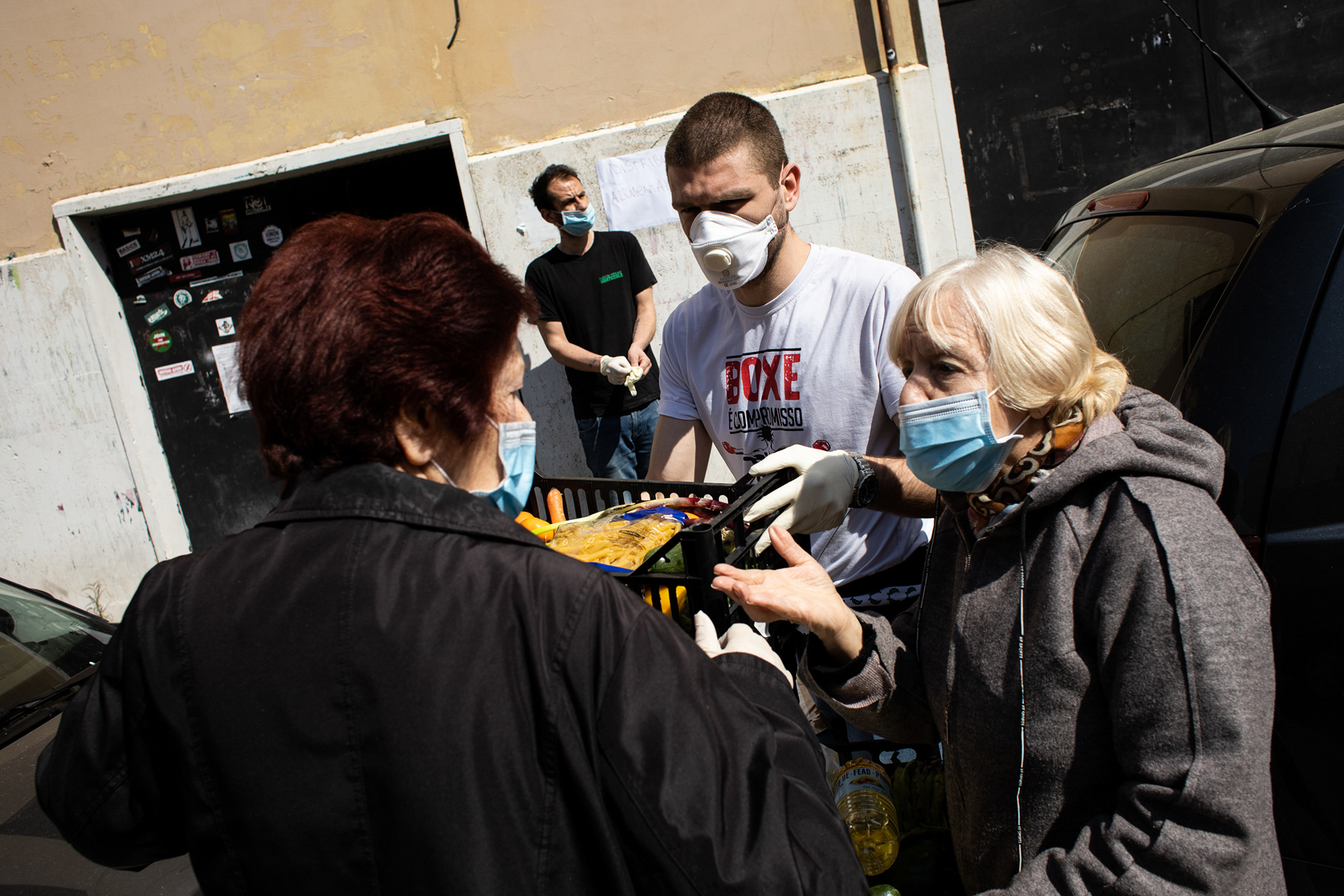
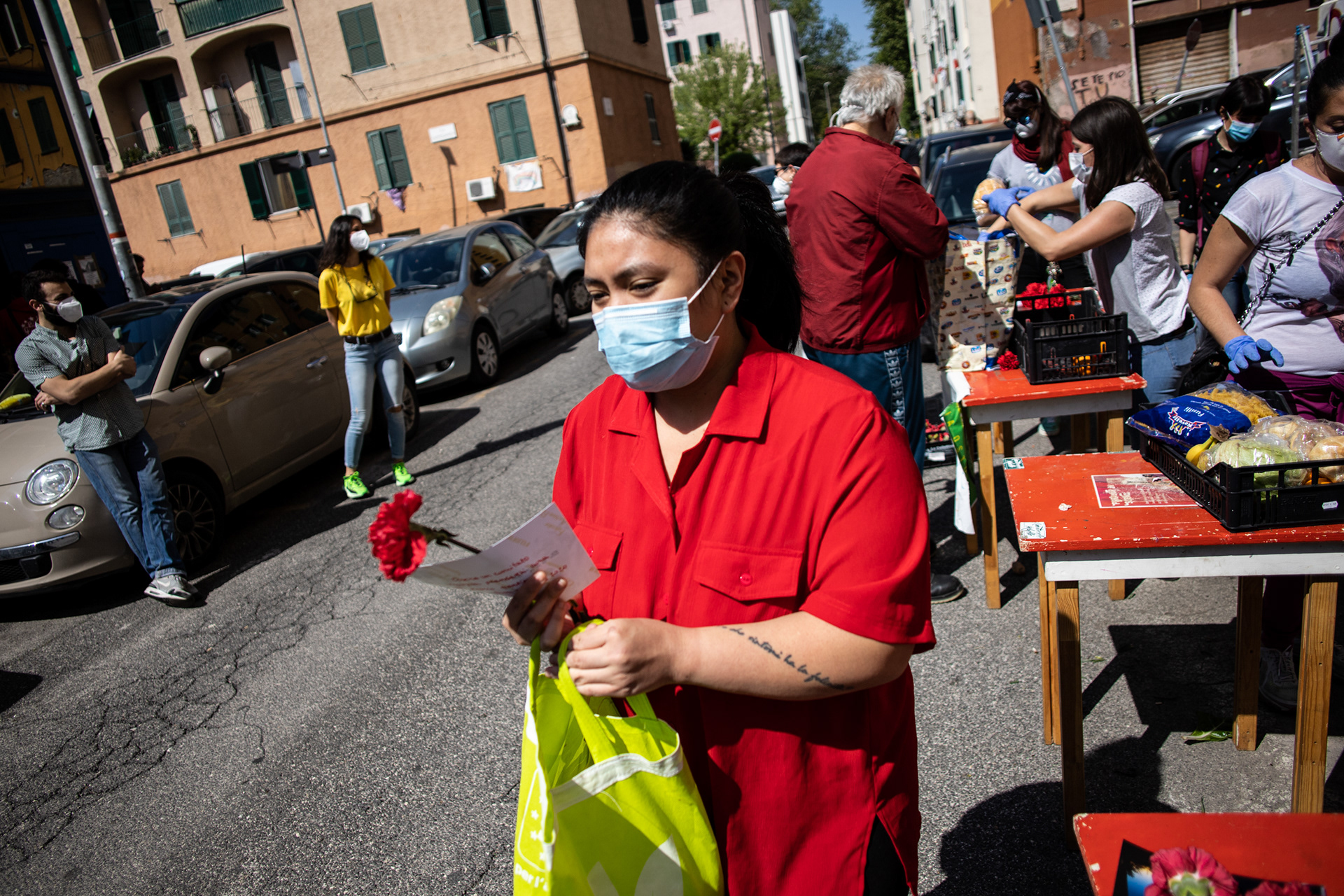
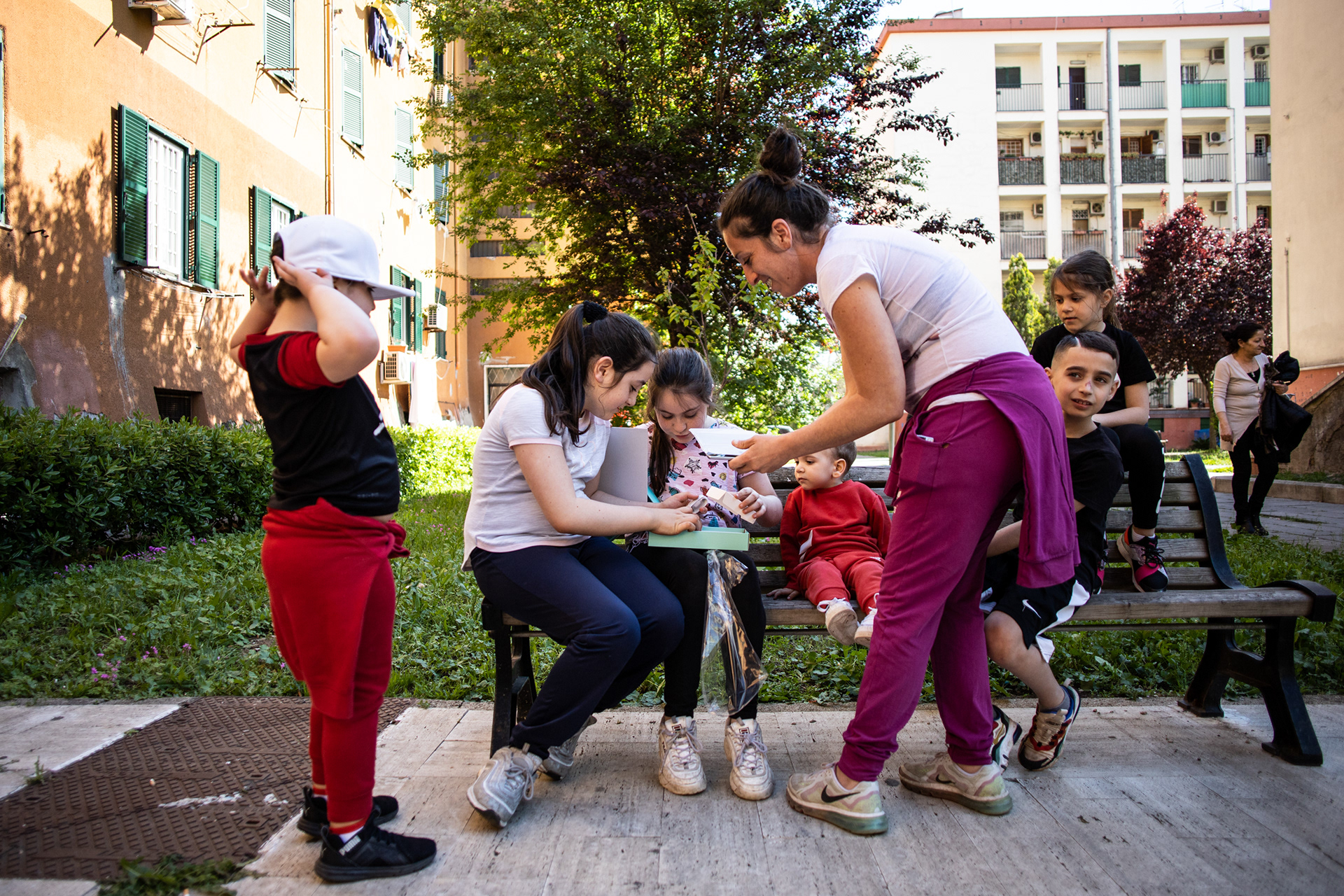
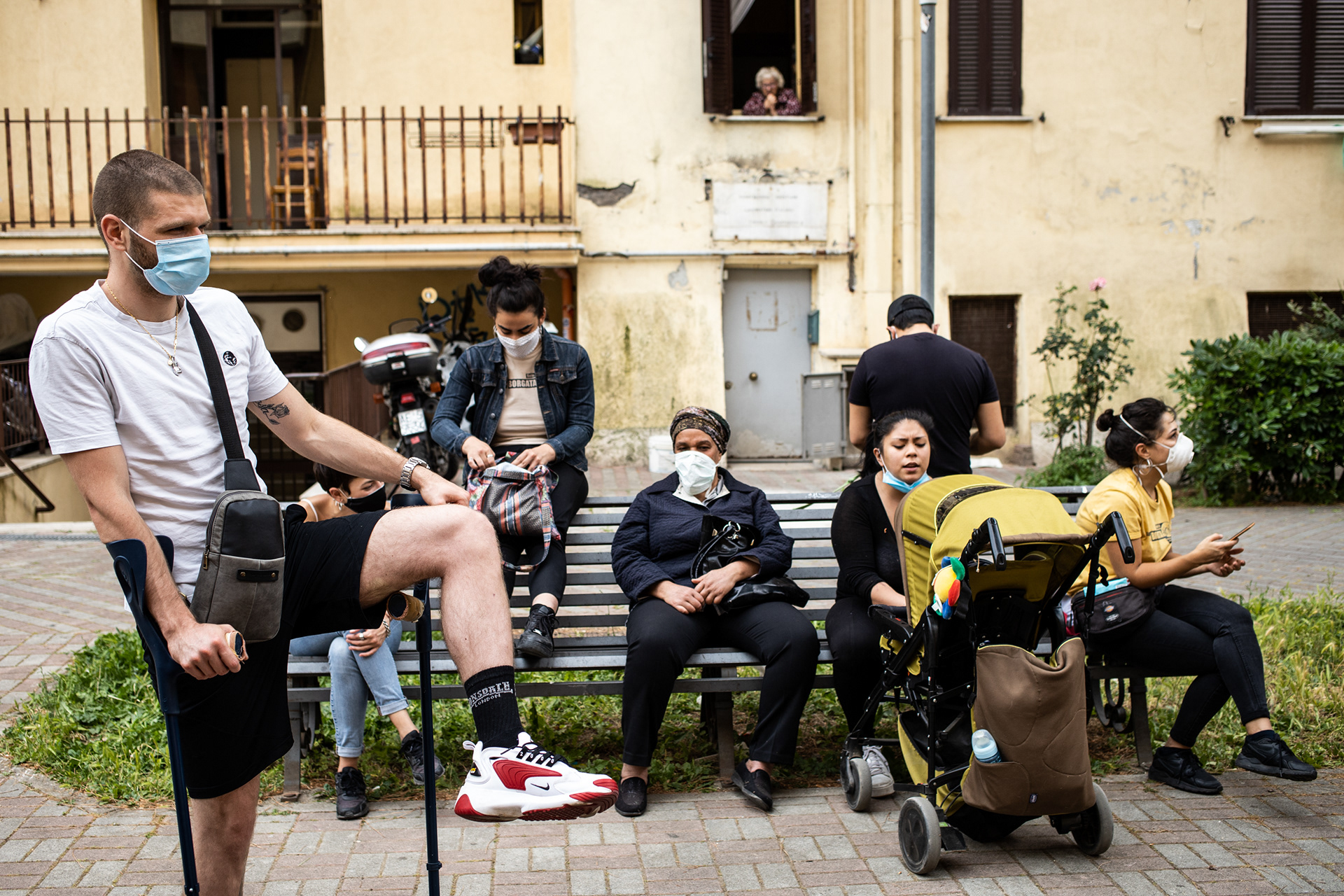
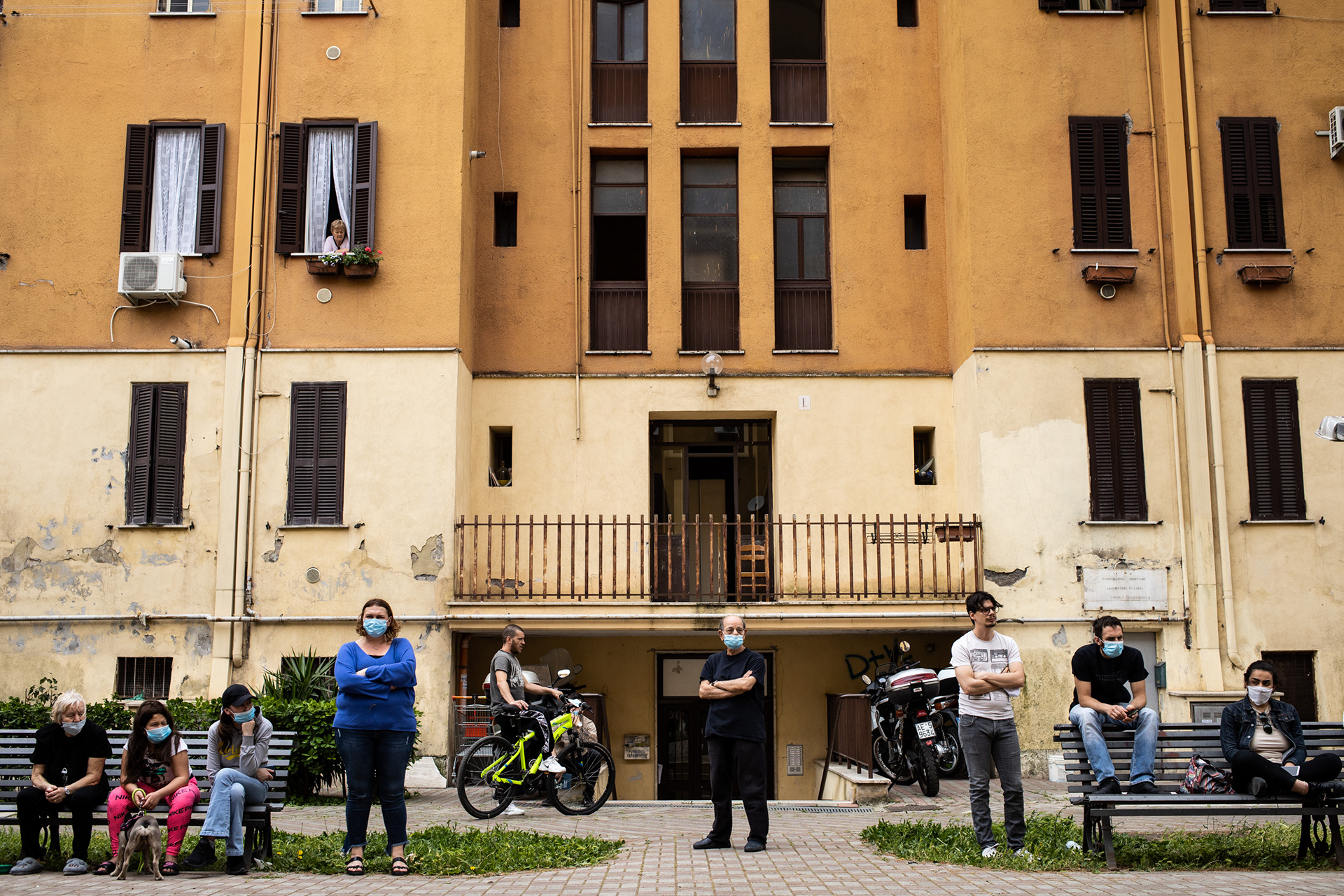
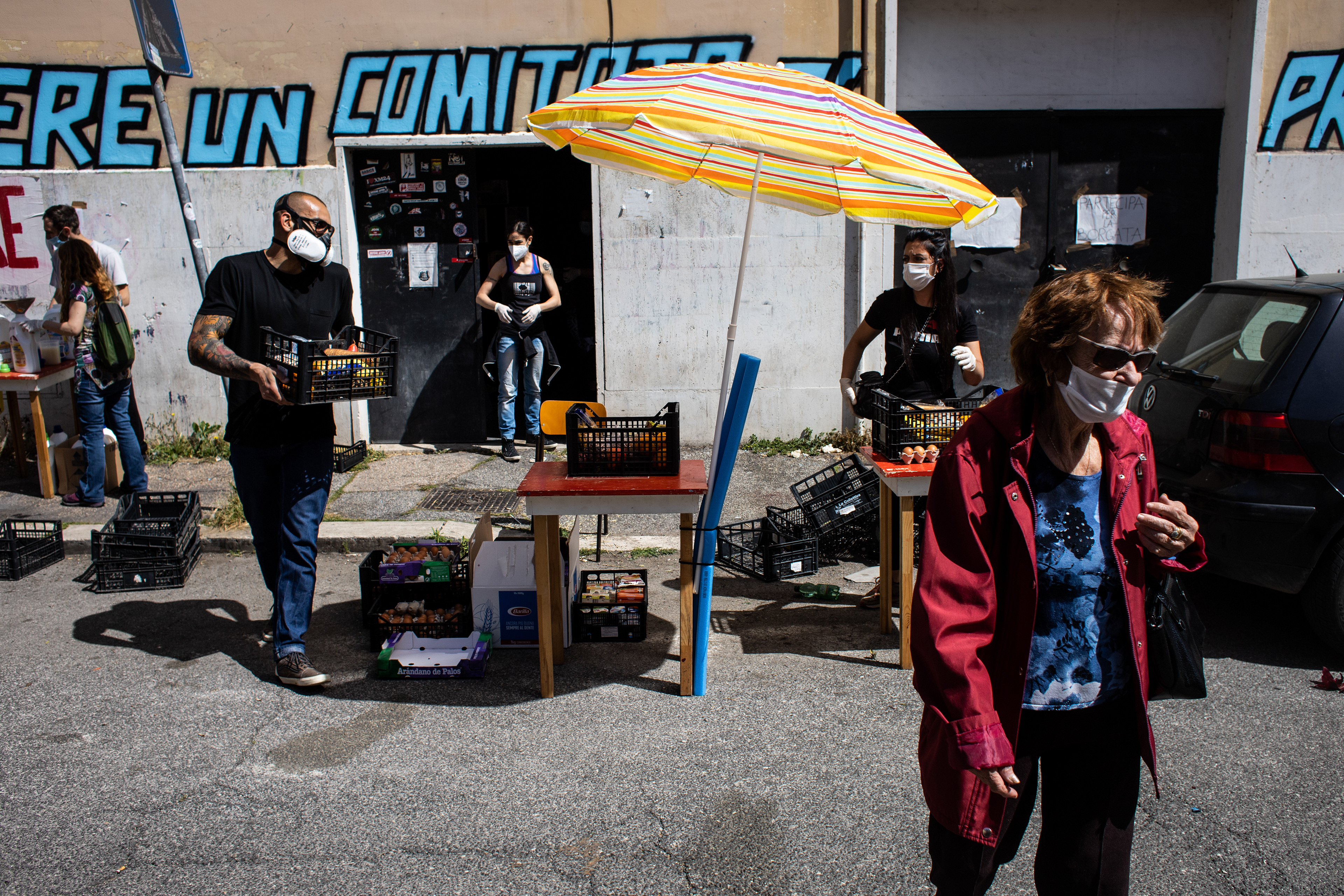
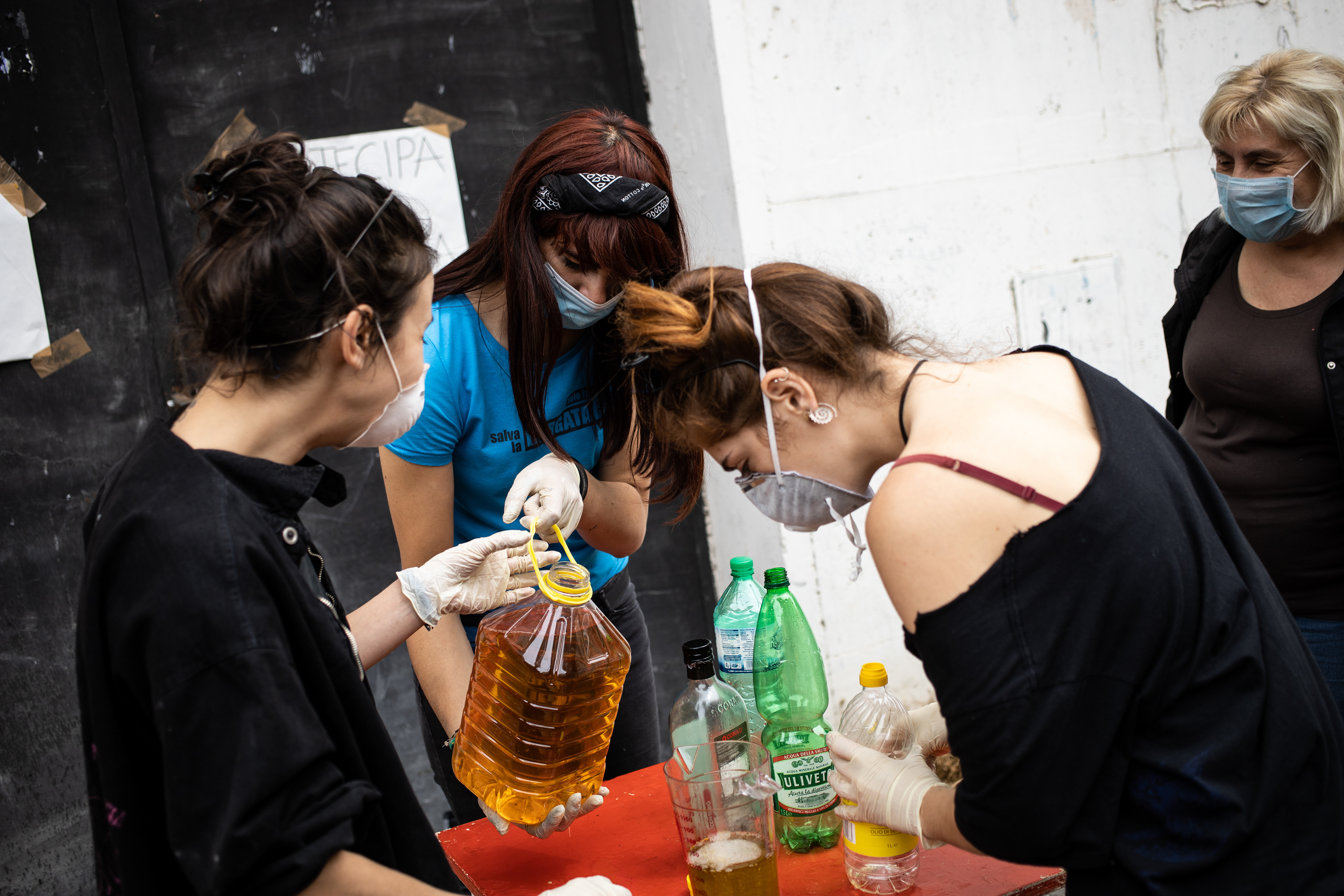
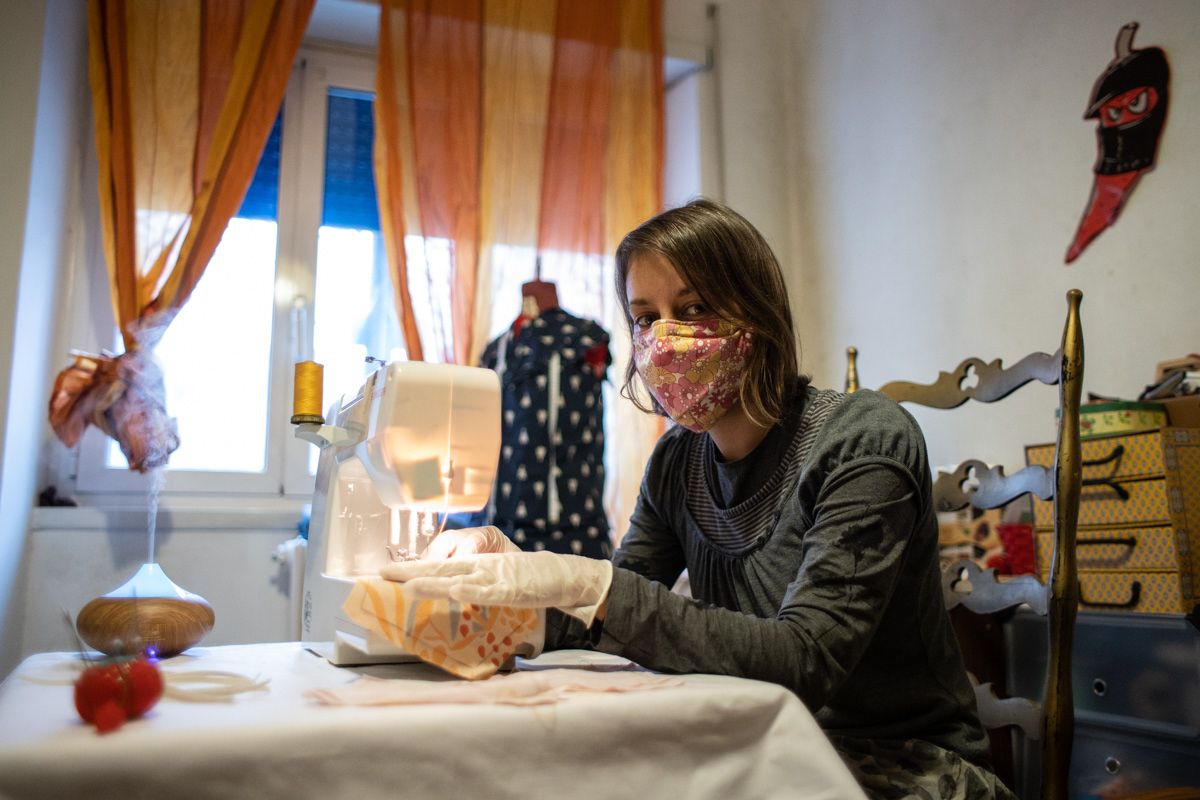
"Our effort should be an exception, instead we realize that it is and will be normal," says Pietro Vicari, a member of the Quarticciolo neighbourhood committee. Thirty years old, he lives in a six-storey building, once the Casa del fascio, then the police headquarters. Now it's a residential occupation, on the facade of which stands a huge mural of Blu. It stands out in the center of Quarticciolo, a neighborhood on the eastern outskirts of Rome. Blocks of council houses one in line with the other for about six thousand inhabitants, many of whom have been waiting for a council house for years: in the meantime they make do as they can, often in cellars and in overcrowded conditions. The unemployment rate is very high compared to central areas of the city, as is the school drop-out rate.
Speaking of abandonment, the role of the institutions comes to mind: totally absent. A lack that manifested itself in all its seriousness during the health emergency linked to Covid-19.
Speaking of abandonment, the role of the institutions comes to mind: totally absent. A lack that manifested itself in all its seriousness during the health emergency linked to Covid-19.
The emergency within the emergency
"I used to do a lot of jobs before, all in black. Now, of course, I'm stuck": so says Christian, 18 years old, who lives in an occupied house: "We didn't receive the vouchers that were supposed to arrive from the city hall. There were days when my girlfriend and I looked at each other wondering, "What are we gonna eat tomorrow?". Anna, a 60-year-old Ukrainian woman, echoes him. "I was working in a hotel, with a contract renewed month after month. Obviously, since March the hotel hasn't worked, so neither have I. Since I don't have a real contract, I have no support: I had to start using my savings". These situations are common to many people in the neighbourhood, who have received little or nothing from the institutions: some have received the 600 euro bonus - which for rent, bills, expenses end very soon, even more if you have children - or the redundancy fund, with the delays that have united the whole country. Many saw nothing coming, to be workers without a contract or unemployed, and from one day to the next they were left without any source of income. Municipal spending vouchers were delivered partially and with very serious delays. The mantra repeated by commercials, institutional communications and social messages - "stay at home, everything will be fine" - shattered over the concrete experience of a country in difficulty and over problems that have lasted for years.
"Luckily there are volunteers who distribute the boxes," says Anna, referring to those who immediately thought about how to move in the context of the pandemic so as not to leave anyone alone: the members of the neighbourhood Committee. Faced with the increasingly heavy institutional absence, in fact, here - as in other districts of the capital - the difference was made by the citizens, self-organized to put into practice forms of solidarity and self-determination important when not essential.
From the first week of lockdown, from the window on the sixth floor of the building in the centre of the square came music, words of support and appeals to the sense of community and the need to be active protagonists of one's daily life. This was soon accompanied by material support, with the distribution of masks, disinfectant gel, gloves: "A lady brought us masks sewn by herself, a neighbor gave us a lot of amuchina and we distributed it. But we immediately realized that the need for food was predominant," explains Vicari. So, every Tuesday and Saturday, in front of the Red Lab - the social centre on the ground floor of the former police headquarters - boxes of fruit, vegetables, pasta and bread were distributed for two months: products collected thanks to the support of private individuals, shopkeepers, farms and producers. 40 kg of oranges arrived from the farmers of Rosarno. "It is clear, however, that you don't just live on this: there are people who don't have the money to charge their mobile phones for distance learning for their children, or to repair the car to go to work."
From the institutions nothing came, except requests for help: the volunteers were contacted to bring groceries to people in difficulty. "We went there, of course. But we have to think about a city with drones, police and military in all the streets, where there is no one to do the shopping for the elderly," commented the members of the Committee, who alongside the necessary support for people - over a hundred families assisted - has always made a strong complaint about the institutional absence, even with targeted actions: "These needs cannot be discharged to the volunteers", they said on 8 May, while symbolically unloading the empty boxes in front of the local Town Hall, and then participating, together with other groups of volunteers active in the capital, in the demonstration in Campidoglio square, which called for the distribution of shopping vouchers. "For months politicians have been announcing measures to support families: measures that simply do not exist," they denounced, urging politicians to quickly find the means to act. Neither the local administration nor the city council gave concrete answers, and once again the neighbourhood had to organise itself.
From the first week of lockdown, from the window on the sixth floor of the building in the centre of the square came music, words of support and appeals to the sense of community and the need to be active protagonists of one's daily life. This was soon accompanied by material support, with the distribution of masks, disinfectant gel, gloves: "A lady brought us masks sewn by herself, a neighbor gave us a lot of amuchina and we distributed it. But we immediately realized that the need for food was predominant," explains Vicari. So, every Tuesday and Saturday, in front of the Red Lab - the social centre on the ground floor of the former police headquarters - boxes of fruit, vegetables, pasta and bread were distributed for two months: products collected thanks to the support of private individuals, shopkeepers, farms and producers. 40 kg of oranges arrived from the farmers of Rosarno. "It is clear, however, that you don't just live on this: there are people who don't have the money to charge their mobile phones for distance learning for their children, or to repair the car to go to work."
From the institutions nothing came, except requests for help: the volunteers were contacted to bring groceries to people in difficulty. "We went there, of course. But we have to think about a city with drones, police and military in all the streets, where there is no one to do the shopping for the elderly," commented the members of the Committee, who alongside the necessary support for people - over a hundred families assisted - has always made a strong complaint about the institutional absence, even with targeted actions: "These needs cannot be discharged to the volunteers", they said on 8 May, while symbolically unloading the empty boxes in front of the local Town Hall, and then participating, together with other groups of volunteers active in the capital, in the demonstration in Campidoglio square, which called for the distribution of shopping vouchers. "For months politicians have been announcing measures to support families: measures that simply do not exist," they denounced, urging politicians to quickly find the means to act. Neither the local administration nor the city council gave concrete answers, and once again the neighbourhood had to organise itself.
"From the suburn to the suburn". "Dalla borgata per la borgata".
After all, self-organisation has for years been the basis for the management of the neighbourhood, which has never been the subject of institutional accountability. From this absence, a group of young people decided to take over the situation, initially with the recovery in full autonomy of the boiler room of a building of the Ater - Aziende Territoriali per l'Edilizia Residenziale - in a state of neglect for over twenty years: since 2016 it is open to the neighborhood as a popular gym. "In 2015 we occupied these spaces to denounce the absence of activity in the neighborhood," explains Emanuele Agati, thirty years old, member of the Committee and boxing coach in the gym. "We pay particular attention to the needs of youth groups, even those who do not train spend the afternoon in the gym to see the others. There's nothing else in the neighborhood". In the meantime, two young people have become competitive boxers, finding their own value in sport. One of them is Amr Abdalla. Nineteen years old, he voluntarily participated in the distribution of the boxes: "I am very happy to help. I see a lot of people in trouble, and not only during quarantine. And I am proud of this activity".
At the beginning of this year, the gym finally received the official assignment from the Ater, who recognized its value for the neighborhood. In the meantime, in recent years, actions have multiplied around sport: a self-managed after-school, attended by about forty children, workshops in schools focused on the recovery of the anti-fascist historical memory of the area, and the creation of the Committee to claim the rights of citizens, especially those, many, in housing emergency.
Everything happens with a constant attention to the sense of community and aggregation: since 2016 every year the square is animated by a neighborhood party totally self-managed and accessible to all. Also this year it took place, despite the Covid-19: indeed, just this year it was felt even more necessary.
And so, while after the acute phase of the health emergency, institutional policy insisted on economic recovery, the Quarticciolo found a way to be together. Because it is in a moment of crisis that a community aware, participated, sensitive to the needs of all responds: with masks and food, but also sociality and sharing. All sides of the same picture, made up of knowledge and care of the territory.
And so, while after the acute phase of the health emergency, institutional policy insisted on economic recovery, the Quarticciolo found a way to be together. Because it is in a moment of crisis that a community aware, participated, sensitive to the needs of all responds: with masks and food, but also sociality and sharing. All sides of the same picture, made up of knowledge and care of the territory.
